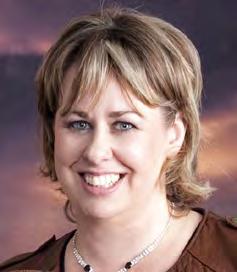


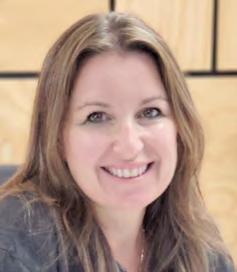

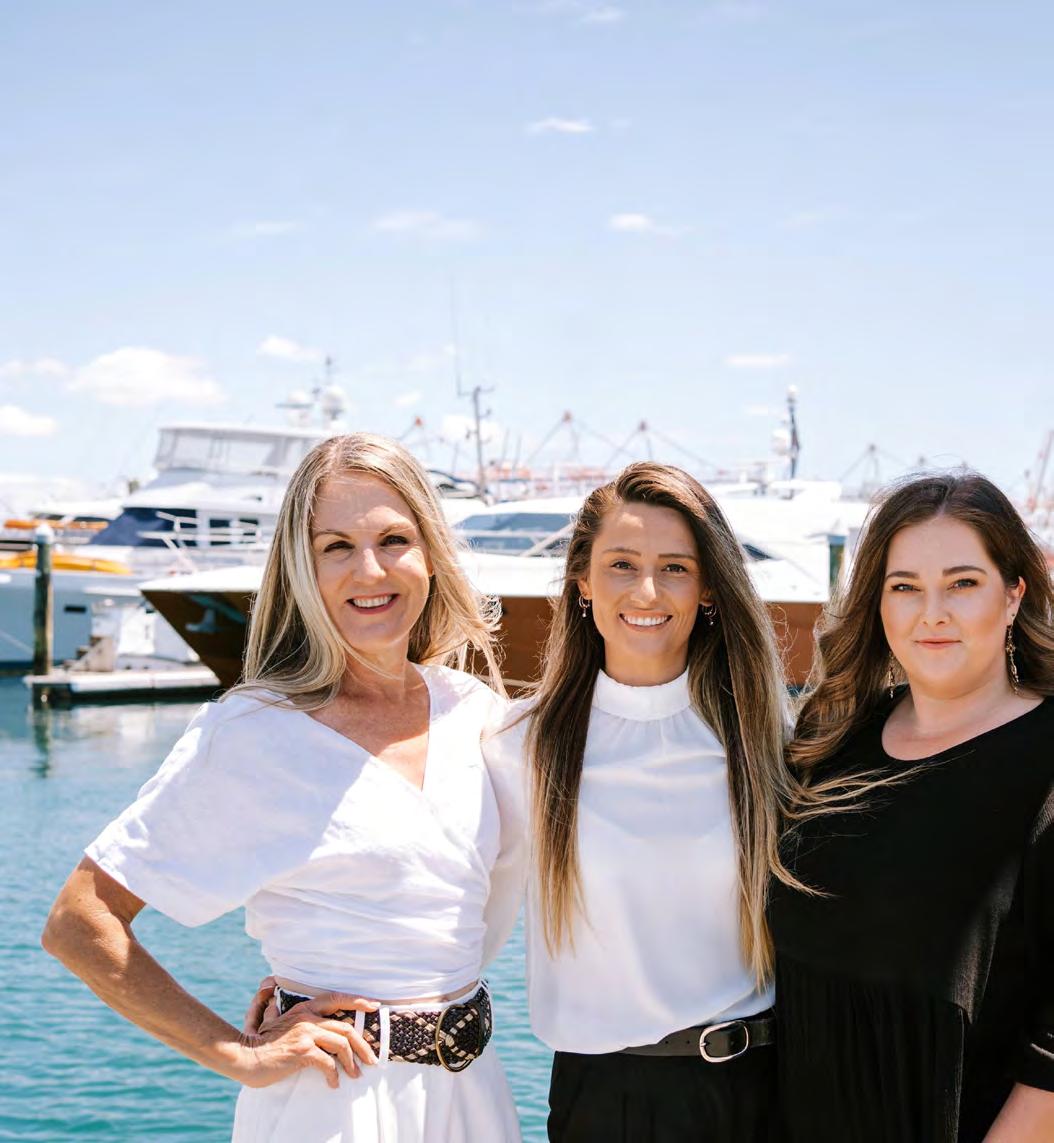




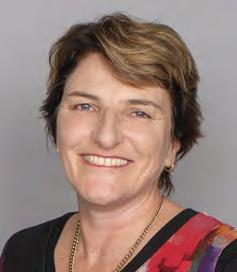
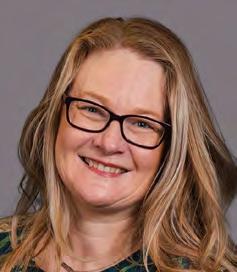
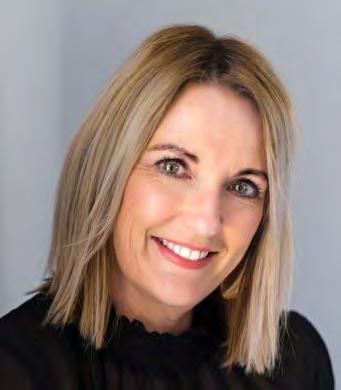
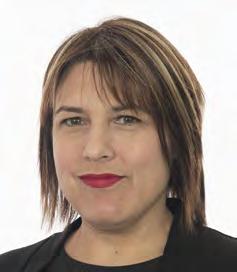





































































































































































Tauranga export success company Heilala Vanilla has managed to exceed the fundraising goal it set to assist the islands of Tonga following January’s devastating volcanic eruption and tsunami.
By DAVID PORTER
The premium vanilla company set up a donation page to assist with the relief efforts, with an initial goal of $100,000. Following an overwhelming response, this total has been exceeded, with more than $140,000 being donated to date.
“We’ve been overwhelmed by our support community globally, it’s really humbling,” chief executive Jennifer Boggis told Bay of Plenty Business News.
The company’s focus, once the islands’ immediate food supplies are met, will be setting up nursery seedlings on the ground. This is something the company has done before, taking time to scale production across multiple villages and locations.
Ironically, the company originally came into being to assist the country after an earlier disaster. The partnership between Heilala Vanilla and the people of Vava’u began as an aid project helping to rebuild after a cyclone in 2002. This initial act by company founder John Ross led to the founding of Heilala Vanilla.
The company has developed a range of vanilla products, including vanilla beans, vanilla extract, vanilla paste, vanilla sugar, vanilla syrup and ground vanilla powder. And it has built up an enviable reputation among




home bakers, chefs and gourmet food manufacturers around the world.
The company says it is based on the principles of fair trade and to support livelihoods.
Charity funding exceeds expectations
“This funding has far exceeded our expectations as it was just a dream a week ago,” said Boggis.
“It shows the power of community and the importance of coming together to help us do even more for Tonga than we ever anticipated.”
Heilala’s community, both locally and globally, has been generous in its support of the fund, with Tauranga-based Comvita also making a significant donation. Mount Maunganui
Sea People Ice Cream will be donating all profits made from its vanilla ice cream Sammies to the Tonga Tsunami relief fund until the end of January. And prominent San Francisco baker (and Heilala customer) Butter& has added a donation feature at its checkout.
Since news broke, the Heilala team has been in contact with MORDI (the company’s partner in Tonga) and has been updated on the situation, particularly in Tongatapu, Haa’api and ‘Eua where crops have been badly affected as a result of the eruption and sub-
sequent tsunami. This is expected to cause a huge food shortage impacting all crops including bananas, cassava, yams, taro, pineapple, watermelon and kava.
Heilala is yet to have direct communication with its vanilla farmers on ‘Eua, but the team is hoping the hardy, waxy nature of the vanilla plant will protect it from the extensive damage impacting other crops. Boggis told Bay of Plenty Business News that fortunately the company’s own vanilla supplies for the coming season were in good shape as they had already brought in their crop prior to the explosion.
Heilala is working with MORDI to formulate a plan for the funds to ensure immediate needs are met, with food being the most pressing requirement. Eleven pallets of food were being shipped in January and these shipments will continue until the immediate food shortage is alleviated.
Once the immediate needs are met, Heilala’s medium-term focus will shift to establishing seedling nurseries. The Heilala team implemented a similar approach following Cyclone Harold in 2020. This will involve providing and planting seeds, building materials and resourcing for the nurseries over multiple locations, to ensure vegetable plants get to the rural communities impacted.
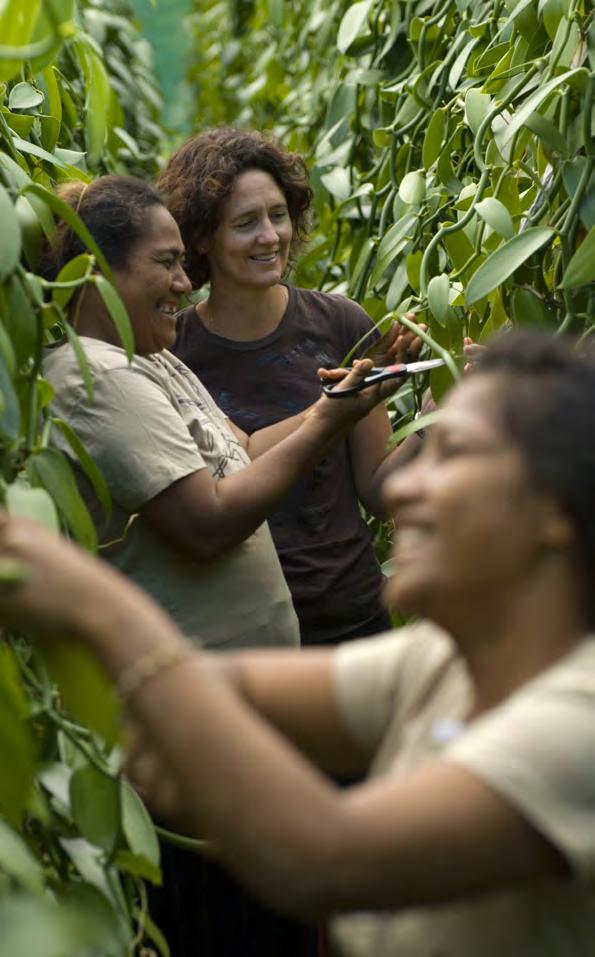




www.bopbusinessnews.co.nz
PUBLISHER
Alan Neben, Ph: 021 733 5366
Email: alan@bopbusinessnews.co.nz
EDITOR
David Porter, Mob: 021 884 858
Email: david@bopbusinessnews.co.nz
PRODUCTION – Copy/Proofs/Graphic Design
Times Media – Clare McGillivray
Email: clare@times.co.nz
ADVERTISING INQUIRIES
BUSINESS DIRECTOR
Pete Wales, Mob: 022 495 9248
Email: pete@bopbusinessnews.co.nz
ELECTRONIC FORWARDING
EDITORIAL:
News releases/Photos/Letters: david@bopbusinessnews.co.nz
GENERAL INQUIRIES: info@bopbusinessnews.co.nz
Bay of Plenty Business News has a circulation of 8000, distributed throughout Bay of Plenty between Waihi and Opotiki including Rotorua and Taupo, and to a subscription base. www.bopbusinessnews.co.nz
Bay of Plenty Business Publications 309/424 Maunganui Rd, Mt Maunganui, 3116
Bay of Plenty Business Publications specialises in business publishing, advertising, design and print media services.
We are delighted to kick off our first issue published in 2022 with a cover story that focuses on the tremendous contribution made by women to the Bay of Plenty business community. All details are on pages 10 to 16, including our cover story on Tidal Yachting, based at the Marine Hub near Tauranga’s Sulphur Point. It is gratifying to see Alisha King and her all-female crew are making a real impact on the region’s marine services environment.
Also of crucial importance to the region – a major supplier to the export agricultural sector, and especially dependent on sales to China – are the implications of a recent story in the New Zealand Herald on the implications of an alarming slump in China’s population growth.
The story was written by agricultural specialist Jamie Gray, with whom I am casually acquainted as we crossed paths when we both worked in Hong Kong a few years ago. As noted by Gray – formerly an experienced Reuters reporter – the Chinese leadership’s efforts to pull back the country’s population growth have been surprisingly successful.
Recently released data showed that China’s birth rate data had dived for the fifth consecutive year with just 7.5 births per 1000 people and 1.4 million fewer births than the previous year. While in NZ terms, that is still an enormous number of people, in China, the number of births was just enough to outnumber deaths.
Clearly the declining birth
rate wasn’t news to New Zealand’s $1.85 billion infant formula industry. But the extent of the decline may have been a shock to many in the industry.
For comparative purposes, China is New Zealand’s largest trading partner, with two-way trade (exports and imports of goods and services) exceeding NZ$33 billion.
And of course, China is the world’s second-largest economy and most populous country. The online Trade and Industry report notes that its sizeable and growing middle class offers significant opportunities for New Zealand exporters and investors.

According to the most recent online data, New Zealand exports to China total $20.1 billion, comprising $16.7 billion in goods and $3.4 billion in services. Our major exports include: dairy (milk powder, butter and cheese), meat products, wood products and preparations of cereals, flour and starch. Our services exports include: tourism, education, transportation and financial services. However, the T&I Department notes that its online data isn’t totally up to date and clearly tourism and education will have taken a Covid-19 hit.
Our total imports from China are
$12.5 billion in
and $800 million in services. Dairy formula exports took a hit from a melamine taint a few years back, and China makes no secret of wanting to curb overseas formula sales.
is understood to be one of the main Bay exports to China, and of course, as a major grower of Kiwifruit
or Chinese Gooseberries as they used to be known here – China is keen to take a bigger share of

Many new owners and captains spend a lot of time trying to access this information and keep coming up against brick walls. Our agents take the guesswork out of the equation.” – Alisha King, Tidal Yachting. See story page 10.


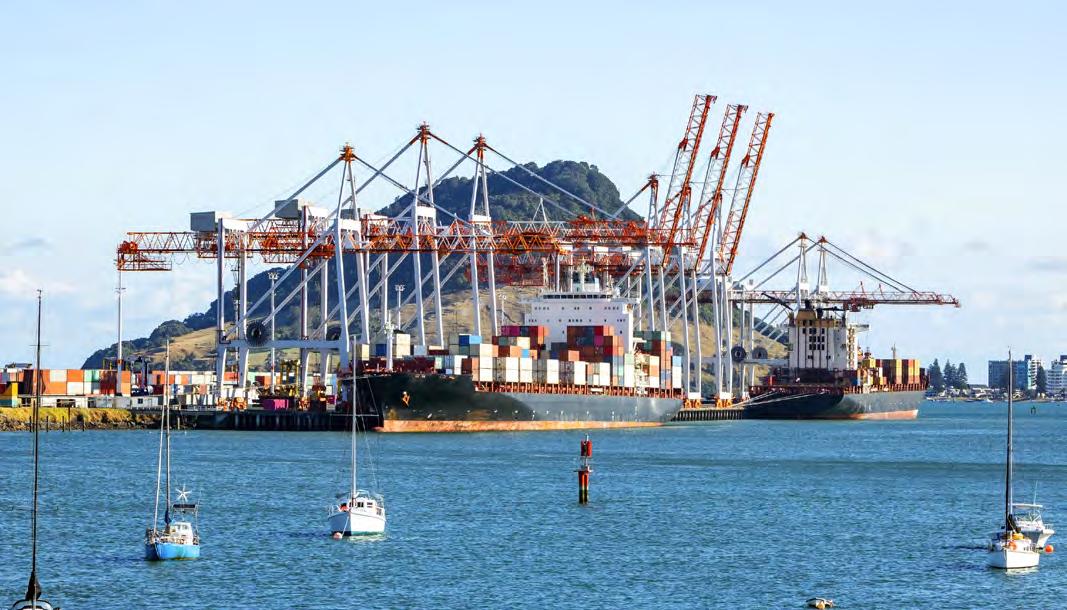
The country’s biggest port here at Tauranga risks running out of capacity if it doesn’t get the green light very soon for a long-mooted container berth extension.
The extension has been planned since 2018 and is considered by export and import leaders to be “critical” in New Zealand’s infrastructure as freight volumes balloon.
The consent is now awaiting a resource consent hearing date in the Environment Court, according to a New Zealand Herald report by Andrea Fox. It was declined for the government’s shovel-ready and Covid fast-track infrastructure project programmes in 2020 and 2021 respectively.
The project has lost a year through these unsuccessful processes, and now the port is “running very tight in terms of capacity matching volume demand”, according to chief executive Leonard Sampson.
It was likely to run out of capacity in 2024-2025 if current annual compound freight growth continues. The berth will take up to two and half years to build.
Leaders of some of the country’s biggest earning export
industries say they’re concerned about the threat to the port’s container handling capacity. They’re urging the Government to urgently recognise the delay issue. The NZX-listed port handles 42 per cent of New Zealand’s container traffic.
On the drawing board since the Sulphur Point container terminal was developed in the early 1990s, the 220 metre extension would allow more big ships to berth and provide capacity for an extra 800,000 to 1 million containers to be handled – or as Sampson puts it, a decade-plus of growth headroom.
Container traffic increasing
In 2018 when Port of Tauranga called in Netherlands-based global container terminal experts TBA to analyse its capacity, the port was handling just over 1 million containers a year, said Sampson. It’s now handling 1.25 million.
“They identified in terms of
the current footprint that without the additional berth we had capacity for around 1.5 million TEU (20 foot equivalent) containers.
“Compound annual growth over the past five years has been 7.4 per cent ... delay in getting consent means we are running very tight in terms of capacity in matching volume demand,” said Sampson. “If we continue growth of seven percent we will run out of capacity in around three years.”
“We have a construction 2 to 2.5-year timeframe so we have a very short period of time before it starts causing challenges.”
The port’s resource consent application is for a total of 380 metres of berth development at Sulphur Point and the Mount Maunganui wharves opposite.
But the priority job is a first stage 220 metre extension to the existing terminal wharf at Sulphur Point. The $68m build would create 368 jobs during construction and 81 permanent jobs on
completion, according to the New Zealand Herald report. Sampson said there are no plans currently to develop the Mount Maunganui side, but the port needs to be ready to develop other berths according to cargo demand.
“Most people don’t seem to realise we are just talking about a berth (at Sulphur Point) on an existing (structure) which is already being used for the port. There’s a big rock wall there at the moment, part of the sea wall reclaimed when Sulphur Point was built. Some dredging is required but only a small amount. Most of the dredging is already consented.”
Meanwhile, major port users are concerned about the delay in a start on the berth, which when added to the existing 770 metre container wharf, would make the quay about 1000 metre long, improving tie up space for current sized big container vessels, but also providing for future ship size growth.
Tauranga City Council’s Commissioners have agreed on a final proposal for the city’s future representation arrangements, in preparation for the 2022 local government election.
The Commissioners agreed that Tauranga residents would elect nine councillors –eight from general wards and one from a Māori ward – and a mayor elected at-large. The eight general wards are Mauao/Mount Maunganui, Arataki, Pāpāmoa, Welcome Bay, Matua/Otūmoetai, Bethlehem, Tauriko and Te Papa (from Greerton through the city centre to the harbour bridge). The Māori ward, Te Awanui, will cover the entire city.
The system will be in place for six years (two election cycles) or until the next review.
Commission Chair Anne Tolley said public representation was the heart of local democracy, and feedback from the community formed a crucial part of the Commissioners’ decision-making.
“Throughout the Long-term Plan discussions, we heard that the community felt ignored and forgotten by the previous representation, and a failure to ensure an equal voice from across the city frustrated them. People told us they wanted to be fairly represented, and we believe this has been achieved through improved geographical ward representation and a more even distribution of residents for each elected member.”
The Commission recommended several additional steps to achieve improved governance, including:
Greater collaboration with the community to ensure people are more closely involved in council projects and a range of views are considered, not just those of elected members.
• The Commission supported the development of a new communications strategy that makes sure the community’s voice is heard. Different community engagement methods are encouraged that allow residents to identify solutions and provide options – not just give feedback on a draft proposal.
• A range of initiatives will be undertaken, with the aim of increasing voter participation and encouraging more diversity amongst candidates.
The Council’s Final Proposal can be appealed by those who made a submission and anyone can object to the changes made, where the Final Proposal differs from the Initial Proposal. Any appeals and objections will be sent to the Local Government Commission for their consideration and final determination. For more details, see: www.tauranga.govt.nz/ representation
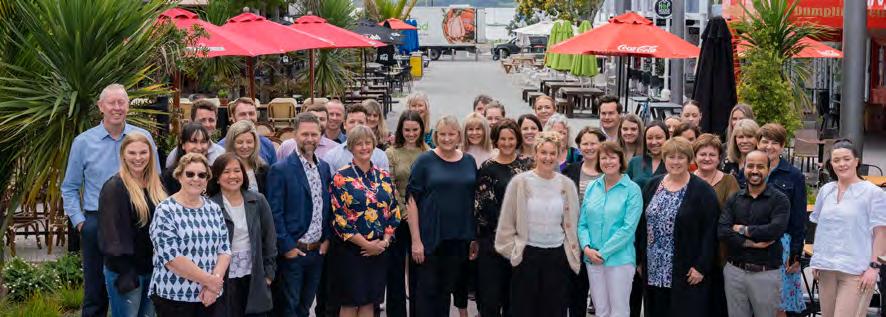

For a small tax, collecting only around $600 million per annum, fringe benefit tax (or FBT) punches above its weight in terms of the amount of angst caused to employers.
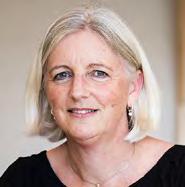
> BY ANDREA SCATCHARD
Andrea Scatchard is a Tax Partner at Deloitte, based in the Bay of Plenty. She can be contacted on ascatchard@deloitte.co.nz
e are currently in the final FBT quarter of the year and if you are an employer that provides fringe benefits you will be feeling the increased cost of the higher FBT rates that kicked in on 1 April 2021.
Even if you have no employees earning over $180,000, your FBT bill in the first three quarters will have increased by at least 15 percent.
And if you do not perform the complex alternate rate calculation in this final quarter for the year, you will have to pay FBT at the top rate of 63.93 percent on all fringe benefits provided for the year.
All things being equal this
is a 30 percent increase in FBT cost compared to the prior year.
Responding to criticism of the additional costs imposed on employers, the government has proposed a late change (which has not yet been passed in to law) to allow employers to use a modified alternate rate calculation.
Broadly this will allow employers to apply the lower flat rate of 49.25 percent to fringe benefits provided to employees who earn under the $180,000 threshold, and only apply the higher rate of 63.93 percent to those that earn over this level.
While this sounds like a sensible approach on the face
of it, it does require employers to largely perform the alternate rate calculation in the first place to determine whether they qualify for this “simplified” approach.
So while it will reduce the FBT cost for affected employers, it does not really ease the compliance costs associated with calculating the FBT liability.
With this increase in the FBT rates in mind it is important to ensure that you pay no more FBT than is necessary.
Our key advice is to review the benefits you are paying FBT on and ensure that a) you are calculating these correctly (for motor vehicles in particular we see a lot of calculation

Our key advice is to review the benefits you are paying FBT on and ensure that a) you are calculating these correctly (for motor vehicles in particular we see a lot of calculation errors) and b) you are applying all of the available exemptions correctly.”
errors) and b) you are applying all of the available exemptions correctly.
You will also need to think about how you approach the March quarter FBT return and the alternate rate calculation – can you do this yourself, do you need to invest in some specific software or should you outsource the process?
It is encouraging that Inland Revenue has commenced a
stewardship review of the FBT regime, which is an assessment of the health of the FBT system to determine whether it remains fit for purpose.
FBT was implemented in the 1980s to ensure tax was paid on non-cash remuneration provided to employees that was not otherwise able to be taxed through the PAYE system at the time.
Inland Revenue is looking
at whether it still achieves this purpose, how remuneration practices have changed over time and are these changes are appropriately dealt with under the existing rules, or could non-cash employee remuneration be taxed differently? We are (at the time of writing) awaiting publication of the recommendations from this review.
I am hopeful that some of the real pain points in the FBT rules will be addressed, such as the compliance costs associated with the alternate rate calculation and the interaction between the FBT, PAYE and entertainment tax rules. It would also be great to see the introduction of concessions to encourage the provision of environmentally friendly benefits such as electric vehicles and bikes. Watch this space for developments.
With the Christmas and New Year’s celebrations behind us, many people will be working on their financial plans for the end of the fiscal year. The WBOP’s community foundation is also encouraging locals to consider their giving goals.
022’s Give Back and Get Back campaign from the Acorn Foundation identifies the benefits that support for the community can provide, particularly during the ongoing impact of Covid-19. Donors get a real sense of pleasure from seeing their gifts at work, and donations made before 31 March qualify for a 33.3% tax credit this year up to the amount of tax paid.
Acorn Foundation CEO, Lori Luke, says that Acorn donors often like to contribute to their favourite causes at this time of year, and professional advisors can play an important role in facilitating philanthropic behaviour.
“Research from the UK and Australia shows that up to three times as many clients will make a donation to a charitable organisation if it is suggested to them by a trusted advisor. We know that accountants, solicitors and investment managers can benefit the
community and solidify client relationships through a conversation about philanthropy –as well as benefitting the community.”
Having the “giving” conversation means that firms can offer clients:
• a significant point of difference in their advisory role;
• a more holistic financial planning approach;
• the opportunity to connect with a client’s core values and aspirations; and
• the knowledge and confidence to help overcome barriers to giving.
Everyone has a cause that they are passionate about, and the 33.3% tax credit this year provides a good incentive to act before 31st March.
Find out more about giving back to the community through the Acorn Foundation at www.acornfoundation.org.nz.

As the economy picks up, demand for many inputs is outstripping supply, driving up prices for things as diverse as construction materials, energy, and food ingredients. Soon, that list will include Office 365 subscriptions.
In August Microsoft announced that effective March 1, 2022 there will be a global pricing increase to their Microsoft 365 and O365 commercial plans. (Consumer and education subscription prices aren’t changing — for now.) As the tools available within this popular suite have grown, adapted and advanced, it has been anticipated that the pricing would one day shift to reflect the true value of these products.
Several Microsoft 365 plans, including Microsoft 365 Business (Basic and Premium), Office 365 (E1, E3, and E5), and more will see a per user pricing increase ranging from 8.5 percent to 25 percent. To Microsoft’s credit, this will be the first substantiative cost update to Office 365 since it’s launch date a decade ago. So, does this mean if you currently own any of these licence plans that on March 1st, your pricing will go up automatically? Not exactly.
If you are a Microsoft customer who prepays for your licensing a year at a time (annual prepay), then this price increase will not go into effect
until your annual term renews on or after March 1, 2022.
If you are a Microsoft customer on a month-to-month licence payment plan, whether you know it or not, behind the scenes you are actually on an annual subscription model.
While you are not obligated to stay on the annual subscription basis and can cancel and make licence adjustments at any time, if you check your admin centre in the licencing section, you will notice that each monthly plan still shows an expiration date sometime in the future.
Meaning the price increase will not take effect on your monthly plan until the subscription renews on or after March 1, 2022.
All of that said, if you provide or upgrade any of these products on or after March 1, 2022, then you are subject to an instant price increase. So, timing is key, and planning is important.
With these changes coming into effect, licensing tenant administrators are recommended to do a full review and get your “house” in order by doing the following:
• Assess your licencing situation
• Optimise your monthly subscriptions (including under-utilised technology included in the licences)
Reduce costs by removing unused licences (such as
Since the arrival of Microsoft 365, 24 apps have been added within the suite. These apps include Teams, Power Apps, Power BI, Power Automate, Stream, Planner, Visio, OneDrive, Yammer, and Whiteboard.

> BY MARIETTE TOLMAY
Mariette Tolmay is the marketing lead at Stratus Blue. She can be contacted at mariette@stratusblue.co.nz.
having an E3/E5 assigned to a terminated employee account)
Choose the right SKU for your needs (such as Microsoft 365 Business for organizations under 300 seats)
• Review spend and understand what you’re being billed for each month
Evaluate the benefits vs. risks of signing up for multiyear plans that will reduce flexibility and increase your commitment to Microsoft
• What are you getting for this price increase?
What’s in it for you?
Microsoft have been generous with the number of free features added to their products over the last decade since Office 365 was launched.
Four years ago, the introduction of Microsoft 365 (M365) brought together the best of Office, Windows, and Enterprise Mobility and Security (EMS). At the same time Microsoft Teams was intro-

duced, which gave businesses the ability to meet, chat, call, collaborate, and automate their processes.
Since the arrival of Microsoft 365, 24 apps have been added within the suite. These apps include Teams, Power Apps, Power BI, Power Automate, Stream, Planner, Visio, OneDrive, Yammer, and Whiteboard. Over 1,400 new features and capabilities have also been released in the three key areas of communication, security and automation.
One thing is clear: Microsoft is trying to entice enterprises to spend more to save more, as the percentage price increases will be smaller on fuller-featured (and more expensive) bundles, closing the price gap between Office 365 and Microsoft 365, and making the higher support levels more attractive.
For a full list of all the new features Jared Spataro, VP for Microsoft 365 has written an extensive blog under “New Pricing for Microsoft 365” on the Microsoft Website.

Scion’s innovation hub, Te Whare Nui o Tuteata, won 14 domestic and international awards in 2021 making it an international timber architecture icon.
The Rotorua building is believed to be a world-first diagonal-grid (diagrid) timber structure for a three-storey building, while also being embodied-carbon neutral. Its name and design feature stories of mana whenua, Ngā Hapū e Toru, and the building was designed by RTA Studio in collaboration with Irving Smith Architects.
Late last year alone Te Whare Nui o Tuteata won two World Architecture Festival awards (World Best use of Certified Timber Prize; World Higher Education and Research), a New Zealand Institute of Architects (NZIA) National Award (Commercial), and a Resene Total Colour award (Neutrals).
A NZIA juror described Te Whare Nui o Tuteata as the “striking new public interface” of Scion, complimenting the “beautifully articulated timber framework”.
Overall, Te Whare Nui o Tuteata has won 14 significant national and international awards in 2021, and Scion Sustainability Architect and Portfolio Leader ‘Trees to High Value Wood Products’ Andrea Stocchero believes there are many compelling reasons why.
Huge viewing impact
“If you look from the outside, you
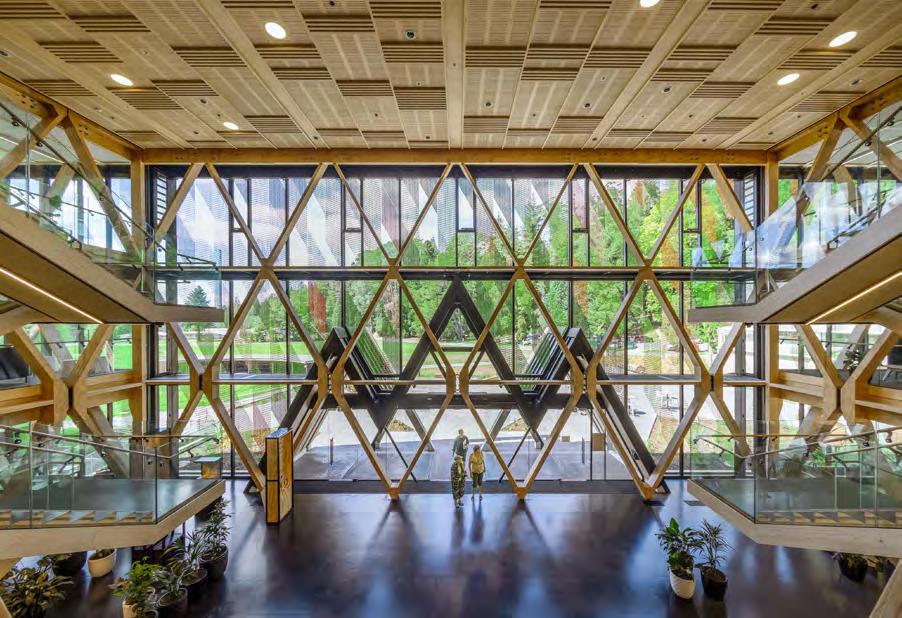
see a simple building with fascinating colours that match the forest and at the entrance, engaging Māori carvings which tell the story of mana whenua. But, architecturally, it is when you walk inside that magic happens… the contrast between the simple aesthetic outside and the shock of entering a huge void hits. You see striking timber structure, architectural lines and natural materials in harmony with each other – that is what is so impactful.”
“The essence of the building speaks very honestly about Scion’s intent. It’s a Crown Research Institute
for forest and wood products making a timber diagrid structure home, located amongst mana whenua’s Tokorangi forest. The symbolism is really strong.
“Trees sequester carbon from the atmosphere while they’re growing, and as long as the wood is in use that carbon is stored, so it’s not going back into the atmosphere. If the timber is sustainably certified it means that the forests are re-growing after each harvest, and the carbon sequestration cycle continues.”
Te Whare Nui o Tuteata stores 418 tonnes of CO2-eqv for the life of the
building, which is the equivalent of one person flying 160 times return from Auckland to London.
“We calculated that the timber that we see here in the Te Whare Nui o Tuteata structure has been regrown in 35 minutes by New Zealand planted forests,” said Stocchero.
“This is a compelling story about the capacity of New Zealand forests to provide the timber we need for future developments.”
RTA Studio executive director Rich Naish said the team was honoured to have been recognised at the World Architecture Festival Awards.
“In these weeks after COP26 the recognition of this building and the innovation it proposes for sustainability and carbon neutrality in the building sector could not be more relevant. We are proud to be able to make a global contribution to the climate emergency,” he says.
Irving Smith Architects design director Jeremy Smith said it was wonderful to be recognised on the global stage for Te Whare Nui o Tuteata which sets new conventions.
“Tackling climate change requires working together and this building provides an invitation to ‘come walk in our forest’ and see how we can all better participate with the environment.”
Positive engaged feedback
Scion chief executive Dr Julian Elder said he believed the accolades had been wonderful, but acknowledged there was another part that resonated most.
“From my perspective, the people we’ve had coming into Te Whare Nui o Tuteata this year – visitor, industry and community groups – those who wander into the café and spend their time here – it’s their positive and engaged feedback with the building which is important for Scion.”
Other highlight awards in 2021 have included Property Council NZ Awards of Excellence, Best of Best Masterprize Award for Green Buildings at the USA Architecture Masterprize Awards, and The Building Award at the Indo-Pacific INDE Awards in Sydney.
Te Whare Nui o Tuteata opened in January 2020 and was gifted its name by Ngā Hapū e Toru who hold mana over the whenua.
The Foster Group is the only construction company in New Zealand to hold both of Toitu’s top sustainability certifications, carbonzero and enviromark diamond. They can also deliver Green Star builds.
To achieve the Toitū certifications, Fosters have already proven their commitment to the environment – they have analysed their impact, set objectives to improve their footprint and set up an environmental management system to help achieve their goals.
To maintain the certifications, they must continually set and achieve their goals to offer cleaner, more transparent, low-emissions builds, demonstrating they have gone above and beyond what is general practice.
What does Toitu carbonzero mean?
“Our carbonzero certification demonstrates that we are committed to ensuring the impact we have on the planet is consistently offset” explains Fosters Sustainability and Compliance Advisor Jael Clausen.
The construction industry produces 40-50% of NZ’s landfill waste. According to Thinkstep, it is one of the primary contributors to climate change in NZ, creating 20% of national greenhouse gas emissions. For Fosters, just because this is ‘industry standard’ does not mean it cannot be improved.
“Fosters acknowledges that we cause harm, so we’re taking the opportunity to invest in sustainable
practices” Jael continues. “Because we manage a large variety of projects, we have gained knowledge on how to build sustainably and we have been able to invest in and implement best environmental practices.”
Fosters was awarded Toitū carbonzero certification in 2020. It means that clients can be confident their building has been constructed more sustainably and with less carbon emissions.
“Toitū reviews our greenhouse gas emissions annually under the international standard for carbon footprints, ISO 14064-1” says Jael. “They check our progress against our goals, and we must prove that we have reached our reduction target for the year.”
Each month the sustainability team record and analyse the group’s carbon emissions, monitoring trends and setting objectives to reduce fuel consumption, electricity usage, and waste-to-landfill.
Other initiatives include making an electric vehicle available for use by employees and utilising companies which generate 100 per cent renewable energy.
“We are targeting a 52 per cent reduction in emissions by 2025” says Jael. “That means achieving a 10 per cent reduction annually through less energy use, less waste
and more efficient transport solutions.” Fosters passed their first audit in 2020 and recently completed the second one.
What does Toitu enviromark diamond mean?
“Our enviromark diamond certification demonstrates we have systems in place to reduce the environmental impact of our business and the buildings we construct” says Jael.
“To achieve this certification, we have developed, implemented, and now maintain a robust Environmental Management System, which is audited annually to ensure it meets and exceeds the components of an ISO 14001 system.”
For clients, the Toitū enviromark diamond certification proves that Fosters is managed responsibly with a whole of environment focus.
“Our clients can be confident that our team will do everything possible to mitigate any environmental impact during the construction process” says Jael.
“This is also important to our team and our contractors” she continues. “They can be confident we are following best practice, going above and beyond industry standard with continual improvement.”
Audited annually, Fosters must demonstrate environmental protec-

tion being put into practice. A simple example is recycling building materials.
Instead of one big skip on site (common on most building sites), you’ll find several bins on a Fosters site collecting concrete, steel, timber, plastics, glass, PVC pipe and many other materials for recycling.
What is a Green Star build?
Aimed at commercial buildings, Green Star is a holistic sustainability rating system for buildings, fitouts and communities. Fosters offer accredited professionals who are trained to manage Green Star projects to meet the extensive requirements.
“We appreciate the holistic approach to Green Star builds” says
Jael. “That is reducing emissions with smarter building, energy and water savings, lower running costs to create healthier work environments and contribute to a better future. The concept is well aligned with Fosters’ purpose.”
APL in Hautapu is a Green Star project. Achieving a 5-star design rating in December 2020, the project is currently targeting a build rating. More Green Star projects are in the pipeline.
“Having inhouse knowledge of the Green Star principles, combined with the work of the sustainability team on Toitū, ensures there is a sustainable focus on every Fosters project” concludes Jael.
“We are proud to be frontrunners in our industry and it means that building with Fosters is better for the environment.”
If you want to build sustainably, the choice is easy.
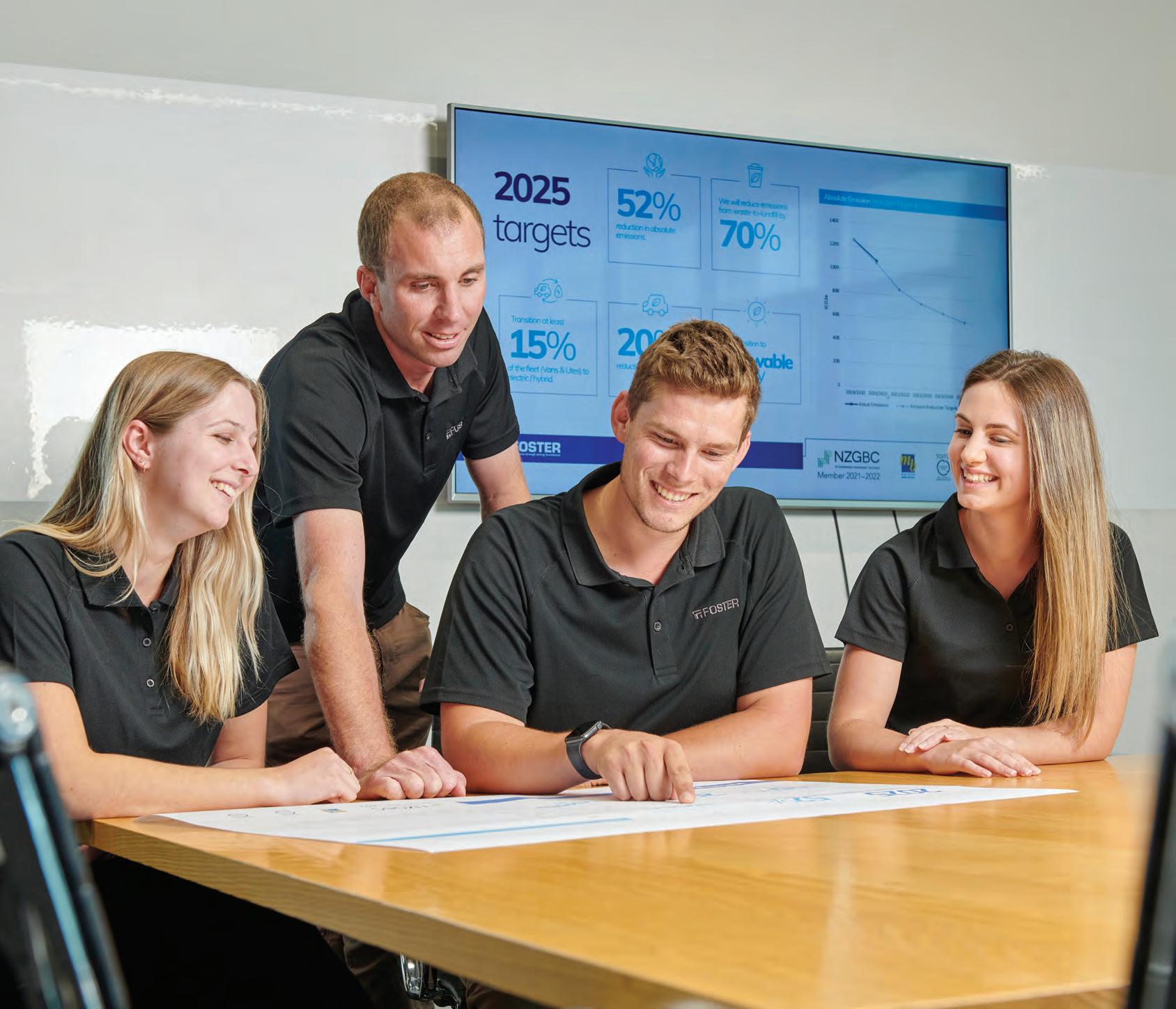
Fosters are the only commercial construction company in New Zealand to hold both top Toitū sustainability certifications. We believe in building sustainably to protect future generations, so let’s talk.



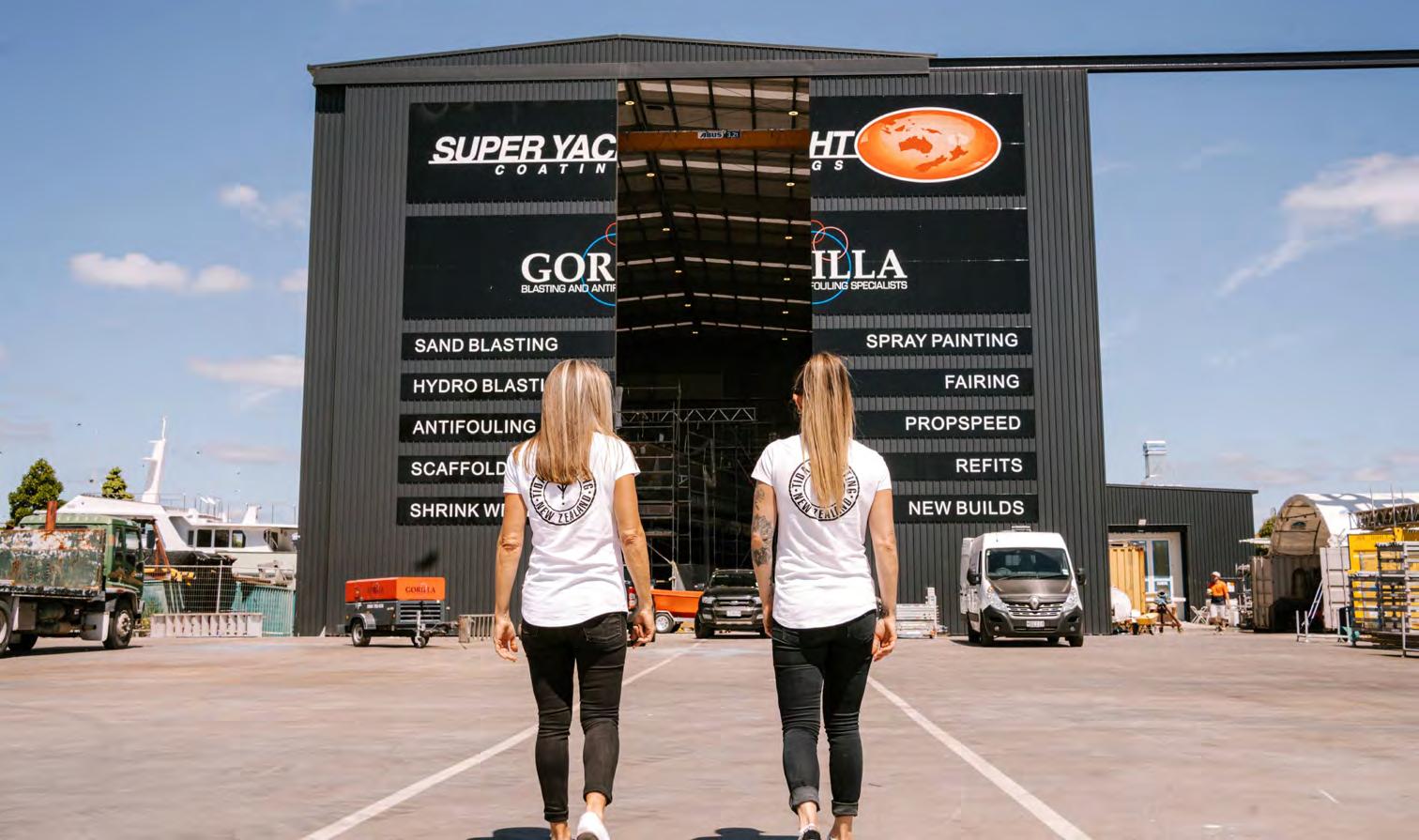
Superyachts are becoming more frequent visitors to our shores as the industry in New Zealand continues to experience growth despite the challenges imposed by the pandemic. A key new player in the market is Tidal Yachting, based at the Marine Hub in Tauranga.
By DAVID PORTER
Chief executive Alisha King and her allfemale team have a complete overview of what is required by visiting yachts. Tidal Yachting is based in the Superyacht Coatings building, otherwise known as “The Big Black Shed” at the centre of the Tauranga precinct.
Due to the pandemic, yacht sales and new builds are on the rise in New Zealand, said King. The borders being closed had forced people to think creatively for their holidays. Some have invested their money in private yachts, or another option has been to sail the New Zealand coastline on a professionally crewed charter vessel.
Additionally, the closures have made it increasingly difficult for world travelling superyachts to visit our shores and this has a flow on effect to the maritime businesses that service these luxury vessels. This raises the question that is relevant to so many companies and industries; how does New Zealand combat the lack of travellers to our shores and the income that they bring?
Key employment opportunities
After all, the yachts bring with them employment opportunities for crew, service providers and contractors – a key element when the Marine Hub was first conceived. Like any successful maritime business, they require hardworking and professional crew, along with 24/7 shore-based support.
The question is how and where do yachts access these people? The answer is, in the same place they will find great scenery, outstanding
provisions, excellent activities, robust maintenance and refit facilities... here in New Zealand, said King, who notes that it is the local service providers working behind the scenes that make the system work.
Tidal Yachting attributes the company’s success to date to “diversity, resourcefulness and trust’ said King.
We promote and utilise our local industry players as much as possible and where we can.” – Alisha King
“With a lack of vessels meeting the entry requirements to New Zealand and restrictions on our ability to travel to our clients, we have had to think open-mindedly about how all our clients and customers can still get the best services.
“Our company started from humble beginnings. The vision was to provide a supportive platform for yacht crew to connect and find support and cement Tidal Yachting into the developing maritime industry in New Zealand.”
The company has grown to now offer a
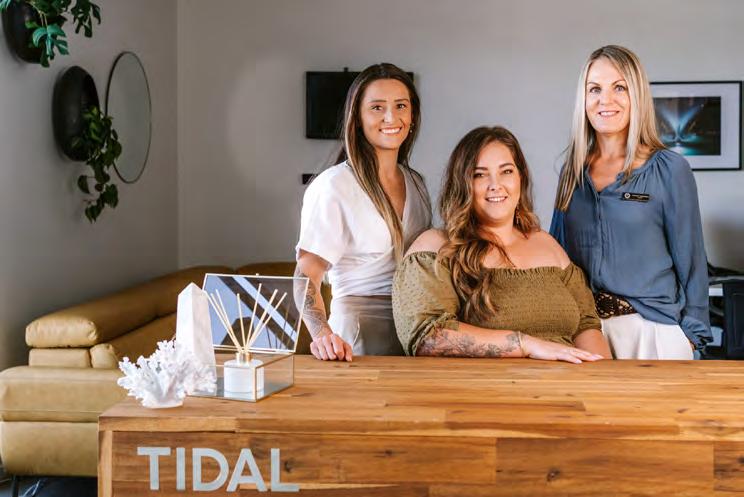
myriad of super yacht services. These include recruitment, yacht agency work, on-water vessel management, and project management for refit and refurbishment. Many new opportunities have arisen with the purchase of offshore vessels and their delivery for local clients to the export of vessels to owners overseas; each having their own set of challenges.
Satisfied owners
Kiwi Chris Nottingham bought a 45 foot yacht in Fiji for his own use last year during the lock-
TidalYachting CEOAlisha King,LoniThompson and Hayley Campbell. Photos supplied
down. He happened to know Alisha King and was talking about it to her and she suggested ways Tidal Yachting could assist.
“I mentioned I hadn’t figured out how to get the boat back here and she offered to help,” he said. “At that point she took over. They organised a crew to get the vessel back from Fiji and organised the customs and paperwork and the whole shooting match. It was a very easy experience, especially considering what I thought it was going to be.” Olivier Ravel, who owns a large superyacht, described Tidal Yachting as a very good young

company and very enthusiastic.
“I have been to New Zealand a few times and we use them every time,” he said. “They are very serious and super smooth,” he said. “Our captain is very happy. And if you have a happy captain, you have a happy owner. So long as you have a happy captain everything is good.”
Ravel noted that he had run into a potential legal problem with a neighbouring yacht complaining of alleged paint contamination from his yacht. “We got the case to Tidal Yachting and they looked after it very well. In a matter of five minutes the case went away.”
King told Bay of Plenty Business News: “Our team’s support and guidance to yacht owners and captains is instrumental in their success in a changing world.”
King grew up in the Bay of Plenty and the Coromandel peninsula, with water activities being a large part of her life. It was no surprise that Alisha initially enlisted in the Royal New Zealand Navy as soon as she could and travelling the globe by sea became her way of life.
King said that helping upgrade schools and partaking in explosive ordinance disposal trips in the Pacific, were key highlights. As was navigating Guadalcanal – site of fierce fighting during World War 2 – via horizontal sextant angle and using Astro navigation to sail the Pacific. Her training ranged from conducting sea trials on ships in Antarctica to Navigation training around New Zealand Shores. Time for a new direction
But it all ended when King opted for a new direction. Her adventures continued into the Mediterranean with her entering the yachting industry, where she gained her qualifications to become a yacht captain. After some time on the yachts travelling the Americas, Caribbean and Mediterranean, she decided to follow a different passion, for wine and food, staging at a Michelin star restaurant in the UK and training under

other great chefs. King returned to yachting as a private chef.
See overleaf as we profile some of the many women who are making their presence felt in the Bay’s business community. Pages 11-16 >>
superyachts,” she said.
“We provide solution-based thinking, navigate regulatory requirements, and endeavour to assist in local and international regulations. As former crew and a captain, we understand the importance of yachts needs and are well-versed in their urgency. We have a diverse talent pool of specialists and resources in New Zealand, and worldwide partnerships and alliances to provide yachts with a one stop shop for all their yacht needs.”
King said that the company can organise everything the yacht and owner may require; getting the vessel from A to B, crewing, paperwork, logistics, party planning, bespoke dinners, golf days, and flights to name a few.
“Many new owners and captains spend a lot of time trying to access this information and keep coming up against brick walls. Our agents take the guesswork out of the equation.’
We provide solution-based thinking, navigate regulatory requirements, and endeavour to assist in local and international regulations.” – Alisha King
She has amassed more than 14 years’ experience in the maritime industry, most of it at sea. Acting as the first point of call for owners, navigating the ins and outs of shipping vessels, vessels in refit, and broker lunches, became her way of life for several years. After completing her time on yachts, King continued to follow her passion of yachts and developed Tidal Yachting.
On her return to New Zealand in 2018, she became the only female travel lift operator qualified to handle the 350 tonne travel lift at the Marine Hub, lifting and blocking vessels of up to 50 metres in length and all shapes and construction.
“At Tidal Yachting we specialise in
“We aim to provide our clients with comprehensive yacht services including access to some of New Zealand and the worlds’ leading marine contractors, exceptional produce and wines, and an activity filled backyard,” said King. By being positioned where it all happens, this allows the company to provide a supportive reality, she said, and Tidal Yachting fully supports the growth of the marine industry both locally and nationally.
“We promote and utilise our local industry players as much as possible and where we can.”
According to King, 2022 is looking hopeful for the maritime industry and the feeling is optimistic. There are people and businesses working hard behind the scenes to have the maritime borders open along with the slow easing in air borders. This in turn will see the return of vessels and super yachts to New Zealand and ensure the ongoing prosperity of the maritime industry, said King.
Adrienne Mikkelsen is the owner of Property Indepth Franchise, covering Bay of Plenty, Coromandel and South Waikato.
I started my valuation career 25 years ago in Rotorua. After three years I left New Zealand and enjoyed the obligatory big OE, living in Edinburgh, Dublin and Vancouver. Upon celebrating my 30th birthday I decided I had better come home and get a real job.
I enjoyed two years as a valuer in Wanganui, before returning to Rotorua. In 2009 I was offered the opportunity to purchase a Property InDepth franchise. As a young(ish) female valuer, this was a fantastic opportunity to own my own business. It is a successful combination of being my own boss, and being supported as a part of a vibrant progressive franchise.
Property Indepth broke the traditional valuation ownership model by offering the franchise opportunity, and without them I would have never become truly my own boss. I am still the only sole female valuation business owner across the Bay, and now have two valuers working for me.
Would you encourage women to become valuers?
Absolutely. Like many other professions, valuation has been male dominated for so long, but in recent years there has been an increase in ladies coming into the profession. It is a sixyear process to become a registered valuer.
This starts with a three-year property degree, if studying fulltime, longer if doing extramural study. Then a further three years of supervision under a registered valuer before submitting an application to the Valuers Registration Board. A long road but I believe it’s worth it.
The benefits include:
• Not needing to be office bound, you can get out in the sunshine when it’s out, and then duck back inside when its raining. Working from home is a breeze.
• Meetings in great cafes and working amongst our regions great scenery.
Founded in Papamoa, New Zealand’s only chartered accounting franchise is on a mission to improve the financial health and wellbeing of the Bay’s vibrant SME community. Money Metrics’ unique roaming workplace model is also fostering gender equity in an industry historically dominated by males.
Once a week, directors Cassandra Park and Karyn Baker meet virtually with their growing franchise team of Chartered Accountants (CAs). Compared to many other firms in the trade, there are two noticeable differences about the participants.
Firstly, as franchisees they are all equipped with first-hand experience of owning and running a business.
Secondly, in a departure from the industry norm, many of the team are female. It is not the only difference the innovative business model is creating.
Previously, New Zealand CAs were limited to only three options to progress

• Above average income that we can manage around our family with flexible hours
• Working with great professional people from developers, real estate agents, mortgage brokers, architects
Obviously like many other professions, technology and systems have made setting up a home office easy. As a working mum, you could ensure your inspections are between school hours (in Tauranga traffic that’s best anyway) and be home working on reports when the kids come home from school.
Valuation is a strong customer relations business, and women have certain strengths that can enhance our success in the profession. Valuation isn’t just about the bricks and mortar of a house, it’s about connecting with your customers, listening to what they may be trying
to achieve in their property journey, and showing empathy and understanding as they explain their goals. I still now get a buzz when my client wins their dream house at auction, when they finally get their long-awaited renovation underway, or when a new subdivision is completed, creating new housing stock.
The favourite part of my profession is seeing my clients succeed in their property dreams.

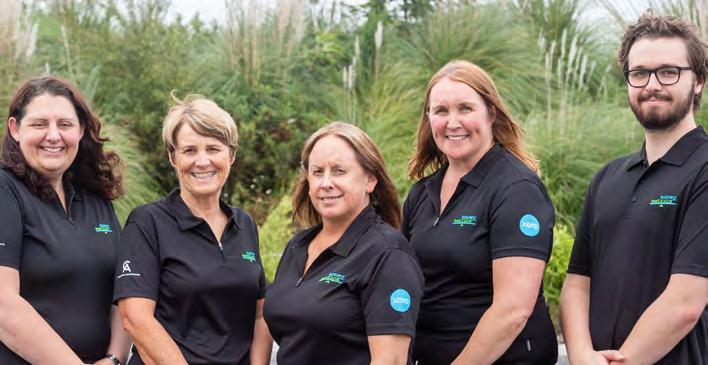
in their careers:
1. Entering into an expensive partner buy-in option
2. Setting up a sole practitioner practice; or
3. Reaching a senior level in a firm, where careers often stagnate.
A decade on from starting the original Money Metrics practice in Papamoa, Cassandra has been busy adapting to change. She explains that modern tech was once threatening to make number crunchers obsolete.
But these days Chartered Accountants are becoming valuable partners in business growth and
success. Continuously evolving with new technology has enabled them to drive more constructive and meaningful results for their clients.
“In a modern day world where ‘workations’ and ‘bleisure’ are a thing, business objectives are increasingly linked to achieving personal goals,” she says.
“At Money Metrics, we take this into account. Our affordable tailored services help improve business performance and success so people can create balance beyond the books.”
Together with being community focused, it is a culture that Cassandra and Karyn also encourage for their team. Franchise owners Yvonne Handley
Affordable tailored services help improve business performance and success so people can create balance beyond the books.
(Bethlehem and Western Bay) and Kelly Lelieveld (Rotorua and Tauranga West) were attracted to the many career and lifestyle benefits of the franchise. Both women have extensive financial backgrounds and expertise. However prior to Money Metrics, very few career opportunities offered the same flexibility, collaboration and support.
Owning a franchise has enabled them to spend more time with their families and juggle all of the demands of being a modern day working mum.
Local Bay of Plenty businesses are encouraged to take advantage of a free one-hour consultation to discuss how Money Metrics can help support their financial health and wellbeing.
After arriving in New Zealand from the UK fifteen years ago, Nicky Spraggon landed a job at Telecom. Over the span of her career with Spark Nicky has had numerous roles across the business, now as Region Lead Owner for the Bay of Plenty.
Each Spark Business Hub offers their customers a personable and trustworthy approach and it’s evident that people and culture are a passion of Nicky’s.
“If you get the culture right for your people, you know they will look after your customers, and everything else follows,” Nicky says.
It’s no surprise that a typical day for Nicky would be to make sure her people are supported. This means getting to know who she works with internally and externally, as well as the environment they work in; from the hustle and bustle of varied workplaces to where they have lunch is important.
One challenge that SMEs are facing is access to I.T. services. Nicky views this as an opportunity. ‘There’s this concept that it’s expensive to get I.T. support, when it actually isn’t. I.T. support is incredibly cost-effective.
“We recently worked with a business owner who was working across several job roles. To help, we put a service agreement in place to help their business run efficiently.”
With good partnerships with people who have the right skills and tools, it’s beneficial to have conversations that make a difference. As Covid has forced more people to work remotely, there’s a
need for efficient I.T. experiences to enable SMEs. Nicky starts to discuss existing and future trends, I.T being an area that she describes as offering huge opportunities. “My team love the innovation space, it’s an area that Spark can help make a difference in. We’re also excited about what 5G can do for us and our customers.”
Enabling organisations and Spark customers to get on their feet with technology is what Spark Hubs are all about. For Nicky, her team and Spark, it’s hugely rewarding. So, if you’re in the Bay of Plenty and need a hand with your tech, reach out to Nicky and her team.

‘The thing I love most about being in business is just being accountable. The buck stops with you and the decisions you make have a direct effect on sales, how people perceive your brand, the longevity of your business and the ability to deliver value to your customers. It’s exciting, its fast paced and when you throw in an international pandemic now and then, it requires a ton of hard work and detail to deliver results’.
Owner of Flame Strategic Media Agency, Stefani Grgicevich-Lassey has been at the helm of one of the largest media planning and buying agencies in the Bay for the last 20 years. At its core, Flame offers impartial media advice across Television, Radio, Print, Billboards and Digital platforms delivering researched multimedia solutions based on effectively targeting client specific audiences.
Independent and fully accredited Flames passionate team has a wealth of experience in the media industry.

Since moving here, Stef has seen businesses thrive and grow in what was once a satellite city to the main centres to a city that has many of New Zealand’s leading brands.
The Bay of Plenty is an extremely exciting region with value-based businesses delivering market leading national brands to international markets.
I feel that moving here was one of the best decisions I have made for both my career and my family as I am surrounded by strong women, friends and clients that
are leaders in all sectors of business from fashion and pharmaceuticals to gardening and education. I am proud of what we can collectively achieve when we all work together.
The media market is changing every day and what worked yesterday may not work today - being on top of trends, being relevant, managing brand safety, driving new customers and protecting those you have can be a minefield so a clear, yet malleable strategy is imperative to our client’s continued success.
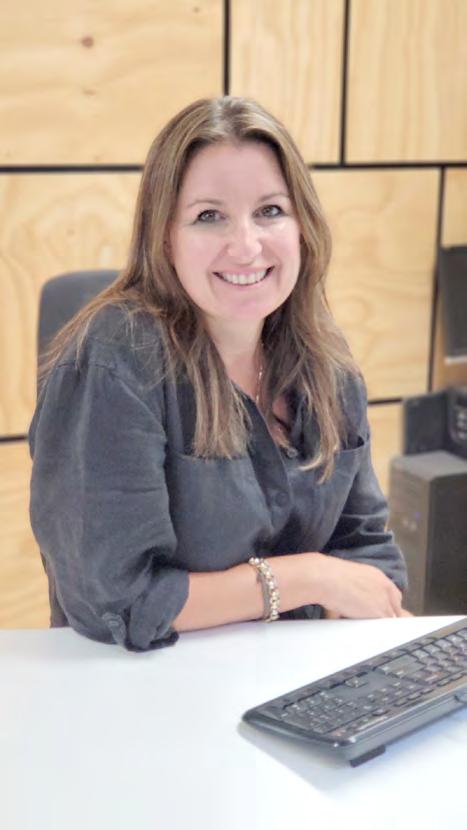

I am absolutely thrilled to share my journey with you. Thank you for taking time to read my story. I find it fascinating how throughout our lives we change our views on aspects such as life, relationships and politics. For me, the shift happens approximately every decade.
A few years ago, I’ve realised that my life is very settled. I live in the most beautiful country, I have been an accountant for over 20 years, love my job and have a wonderful family.
Everything was going well, but… I felt stuck and felt like I wanted “more”. But where do you find “more”? What does “more” looks like? I decided to look on the inside and ask myself questions like, who am I, as a mother, as a woman, as a human being and what future am I building?
I realised that the universe within me is immense, and my personal growth has no boundaries. Shortly after I set up a challenge for myself, which was this: Make sure that each subsequent year I knew more than I knew the year before. And my journey began. I studied psychology and obtained a Diploma in Psychology.
Year after year I was going to various
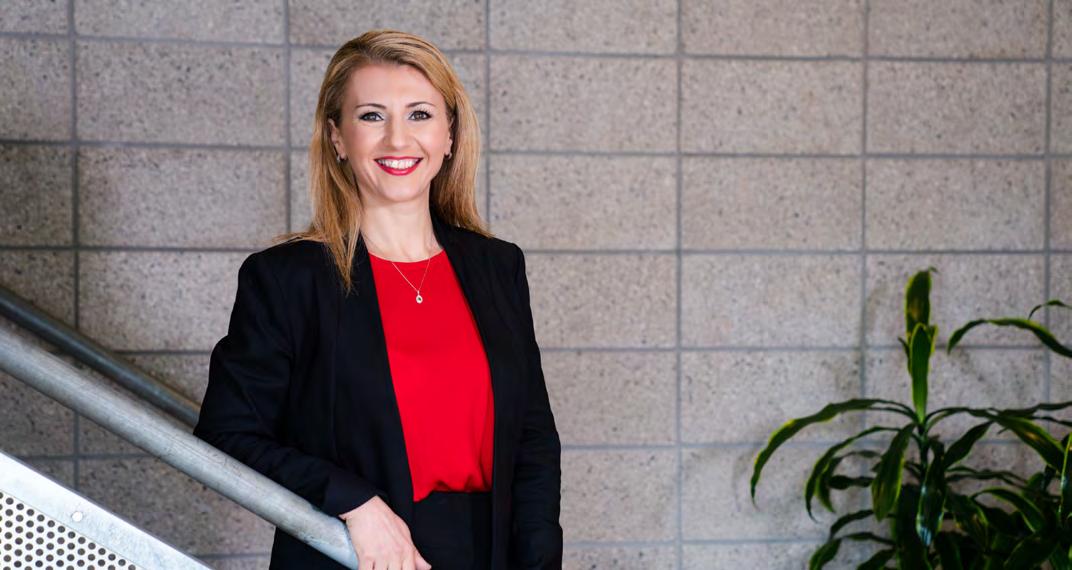
seminars and undertaking courses. I gained certification as a Transformative Couch, went to seminars in Melbourne and Sydney. I attended a five-day, grueling, and very prestigious Business Mastery.
I’ve learned so much about business, how to operate and grow a successful enterprise and how to be an entrepreneur, rather than an operator.
My mind was opening, my horizon was growing, I did not feel stuck any longer.
My business is Emerald Business Advisers Limited and so far, the journey has been exhilarating. I started operating on the 1st of April 2020, and yes, this was the second week of the first lockdown. It was an extraordinary time (in all
our lives). There was absolutely no certainty nor clarity about what the future holds, but I had no Plan B, I did not want a Plan B. They say, if you want to take an island, burn your boats. And I did, one day at the time, one happy client at the time, and now, if I look back at the past 18 months, I see a lot of satisfying moments of serving people and giving them the attention, they deserve.
A modern accountant must be technologically savvy, professional, and continuously examining best practices. Your accountant must have excellent communication skills and must be reasonably priced.
And this is what Emerald Business Advisers is about. We use online solutions to run our practice and we help
When Linda Harley sold her own business, the experience was not as professional as she would have liked. Not impressed with the service and skills offered by the Broker, Linda decided this was a career she would be able to move to and capitalise on her business skills from 20 years in the Kiwifruit industry.
Originally wanting to sell horticulture businesses which was her background, Linda found a passion and niche in the Childcare business sales space. She was drawn to the people and the education side of the Childcare industry.
Following six years of selling a range of businesses in Australia, Linda is now the Business Partner and leader of ABC Business Sales Tauranga / Bay of Plenty. She manages a team of six salespersons who specialise in all different types of industries.
“What I enjoy about leading a team of brokers is that I can instill my skills that have been developed over many years to the team. This allows my team to be the best that they can be throughout
the whole business sales journey,” says Linda Harley.
“2021 was busier than I thought it would be given Covid. Winning the REINZ Business Broker of The Year Award did confirm that I did have a fantastic year and helped a lot of people get through their sales,” says Harley.
Linda has been the Runner Up for REINZ Business Broker of The Year for around the last seven years, so winning the award last year was a great achievement. It’s taken Linda over 15 years to get the recognition and she is the first woman to win the Business Broker of the Year Award.
“It was a proud moment for sure to be recognised as a leader in that field.
Hopefully, I can inspire other women to get into being a business sales broker and make known it is a good career,” says Linda.
2021 was a record year for Linda and 2022 is proving no different as she is already above what she did last year, on track for another record year.
“We are lucky to be based in the Bay of Plenty region, it is becoming a desirable destination for business buyers across a range of sectors. Our biggest challenge currently is having enough businesses to offer our growing list of buyers wanting to purchase a business, so now is the best time to sell with the ABC Business Sales Tauranga office,” says Linda.
our clients to transition online. We are constantly seeking ways to make your life easier, improve your business, and increase your profitability while taking care of all your accounting and taxation needs.
So far Plan A is working wonderfully, and I greet 2022 with new ideas and ambitious plans. Please get in touch for a chat. I would love to meet you and see how we can help.



2022 marks 10 years in business for strategic communications agency
The Shine Collective. Founded by Jacky James in 2012, the agency –now a successful partnership between Jacky and Meg Jones – has gone from strength to strength as they grow the team, and make positive impacts for their clients and the communities they live in.
Committed to telling the stories that matter, The Shine Collective is a group of like-minded individuals who are passionate about delivering outstanding outcomes for their diverse portfolio of clients.
The agency has seen significant growth over the last three years, from Jacky originally working from her spare room as a one-man band in 2012, to a team of 13. Now, with offices in Rotorua and Tauranga, Shine’s focus hasn’t wavered – it’s all about people.
The pair believe people are at the heart of great communications, building on Jacky’s vision to grow a business
that puts communities firmly at its core, creating a vibrant and healthy place to work and where clients are celebrated.
“We bring the stories of people and their businesses to life and protect their brands when it matters the most,” says Jacky. “We’re trusted to work with some incredible leaders, often on projects that affect the lives of thousands of New Zealanders. We never take that responsibility lightly.”
That dedication to their clients has seen The Shine Collective being recognised with multiple awards by the Public Relations Institute of New Zealand for their PR, communications
strategies, and community engagement projects.
Both Jacky and Meg have been (and still are) working mums, so they understand the value of a flexible working environment and ensuring family values are at the forefront of the workplace.
“It may sound cliched, but we value the whole person,” explains Meg. “Everyone brings to the table their working and personal experiences, along with their passions, which helps us to better connect with our clients and their audiences. Whether that’s for multisport events, environmental and sustainability initiatives, or protection of our most vulnerable.”
Both Jacky and Meg have done the hard yards spending their earlier careers working across the public and private sectors, both here in New Zealand and overseas. They’re clear what great communications looks like – and what

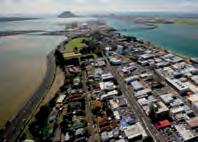

My journey in recruitment began in my 20’s: as a young woman I left the ‘retirement city’ of Tauranga and headed for the bright lights of Auckland which was to become home for a few years.
I fell into the industry quite by accident, initially working as corporate Receptionist for an international consultancy. I remember the interview vividly - it was the end of the day when I met with the Branch Manager.
The meeting started with the buffet, a bottle of wine popped and the offer of a cigarette. I was tempted to partake but my parents’ words came racing back: “First impressions are lasting impressions.” I politely declined. Perhaps it was a test? I was successful in securing the job.
I absolutely loved the role and took every opportunity to learn, eventually ending up as Personal Assistant to the Executive Team of Consultants. During those five years I realised my love of the fast-paced job encompassing people, processes and intuition – I knew it was something I wanted to be involved with for a long time.
A new opportunity eventually arose in Wellington and with my zest for fun and adventure, I relocated and was employed by another recruitment consultancy – this time a medium-sized national firm that offered a great career path. I joined as an Assistant Consultant, after three months I’d moved into a Temp Consultant role.
My memories of those days are of fun - fast and fabulous. I was fortunate to work for a manager who believed in me and my capability. Over the next five years I seized every new role that was available.
A highlight was setting up a specialist Tele-Staffing Division that recruited for Call Centre staff – it gave me new levels of responsibility and unlimited rewards. My time with that firm ultimately gave me the confidence, knowledge and expertise to set up The Staffroom a few years later. I learnt about not cutting

being a great employer looks like.
“If Covid has proven anything, it’s the critical value of great communications,” says Jacky. “And that’s what we’re all about.
“Our focus for the next 12 months is supporting our clients to embrace and thrive with disruption. Beyond that, we want to be leading the revolution from the ground up to make authentic, values-led communications the norm.”

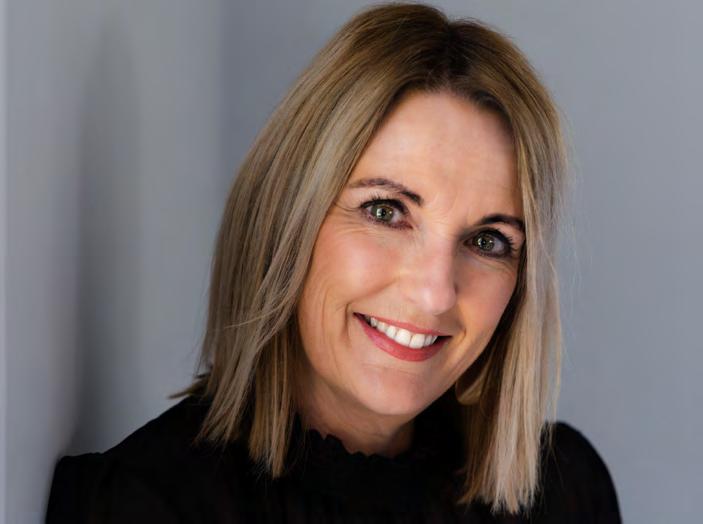
corners, the importance of quality and excellence and how effectively those attributes delivered the right results every time.
When I eventually returned to Tauranga with a young family, I worked in part time sales and people-based roles for a short period; but the recruitment memories kept returning and I eventually decided the time was right to set up The Staffroom.
Initially the goal was to have worklife balance where I could be available for my two daughters (now 17 and 23) through their school and sporting years. But as the business grew I realised it was too much for one person and subsequently took on more staff.
My vision has always been built on my previous learnings – to offer a quality process with excellent results. That is
at the heart of everything we do at The Staffroom. My experience of having a manager who believed in me was invaluable; It is something I offer to my staff today.
Over the past 11 years, our business has been built on referral and reputation. We continue to be busy offering quality solutions-based staffing to businesses, along with a valuable service to candidates.
I will always be grateful for those key people who believed in me and taught me about the right way to recruit.

A no-fuss approach to legal matters plus a friendly, open communication style is what you can expect when working with The Law Shop. It’s a team of 10 that works with clients from around the Bay of Plenty who need advice on residential and commercial property law, relationship property, family law and everything related to business.
Paula Yakas has owned the Rotoruabased law firm since September 2008. She was joined in partnership by Stephanie Northey in 2014. Although they’ve seen plenty of changes since the beginning and a few men worked at The Law Shop over the years, it’s now again an all-female team of solicitors and admin staff.
“Nothing against men of course, but we do like it this way. For us, flexibility, supporting other women, and caring for each other is what matters,” Paula says.
Where Stephanie specialises in family law and mental health, Paula’s main areas of expertise are business and
property law. Due to the recent developments around investment properties and changes to lending criteria, pre-approvals and tenancy laws, she’s been focused on helping local homeowners, investors, first-home buyers, renters and bach owners navigate it all.
“The law often changes, especially to do with property and business. We’re here to help you understand it all and deal with the complexities, then we’ll work out a solution,” she says.
“Our main point of difference is that we bring a holistic approach to legal matters. Every situation is different, so we carefully listen to the people behind
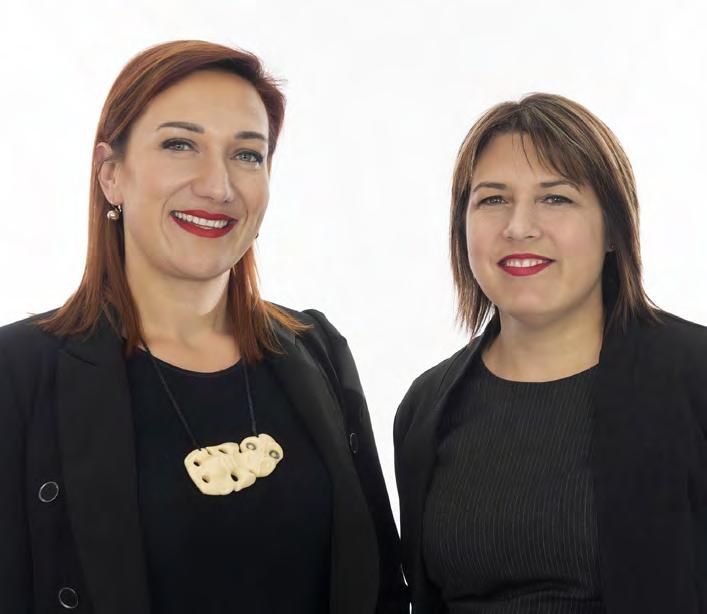
the business and ask lots of questions. We’re personable and look at everything on an individual basis.”
The Law Shop has a strong team of legal experts and experienced negotiators who genuinely care about their clients. They provide timely and accurate legal advice without the jargon, at a fair price, and you can always count on a no-nonsense and solution-focused approach.
The Law Shop 1268 Arawa Street, Rotorua
Email: team@thelawshop.co.nz Phone: 0800 129 691
McFall Fuel is a fuel and lubricant logistics specialist servicing farming, forestry, commercial, transport, construction, marine and other business sectors. The company offers bulk fuel, lubricants, fuel cards and storage solutions and operates across the North Island.
The McFall Fuel team has always had a culture of enthusiastically helping customers through service and innovation – in 2022 that innovation extends to the make-up of their operations team.
Chances are you’ve probably seen the McFall name on their fuel tankers and trailers on the highway at times, but most people are unaware that behind the wheel, and behind the scenes in the logistics planning office, a couple of talented women are breaking new ground.
Think ‘tanker driver’ and most people visualise a hi-vis overall clad ‘bloke’ –Think again when you next see a McFall Fuel tanker. Bulk fuel delivery driver Mel Riddle is anything but an ‘average’ driver – the experienced class 5 tanker driver has been with McFall Fuel for four years, having come from 15 years as a builder in the Waikato.
Why the change in profession?
“Because I wanted new challenges,” says Mel.
McFall Fuel CEO Sheryl Dawson describes Mel as a dynamo.
When she’s delivering to a new farmer, Mel has a rule: “If I can’t make them have a laugh in the first 5 minutes, then I’m not doing my job.”
Sheryl is very up-beat in acknowledging the big impact women have had on McFall Fuel’s operations. The family-owned business operates across the entire North Island and has broken new ground over many years employing a string of women in what have often been traditionally viewed as ‘male-dominated’ roles.
McFall has around 10,000 customers – in effect, the efficiency and professionalism of the company is critical to the success of many New Zealand
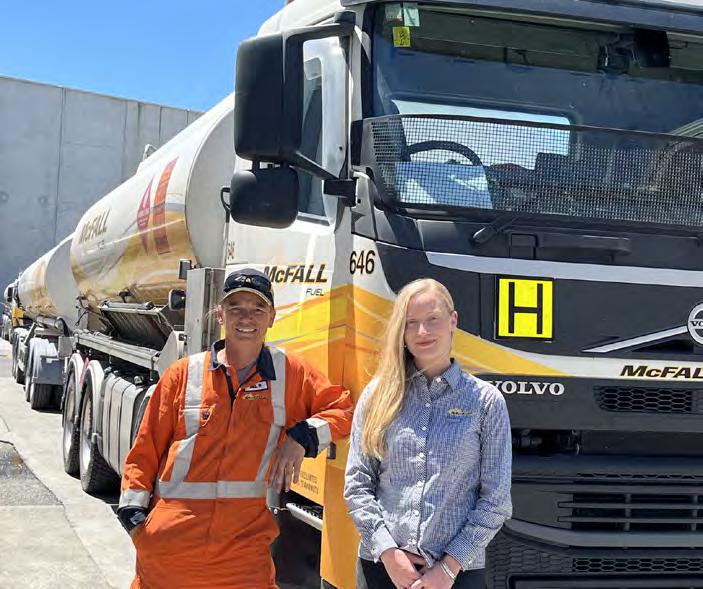
industries and the economy as a whole.
“Having these talented women enjoying varied and exciting roles in the industry is extremely exciting,” says Sheryl.
Another exceptional woman in a critical role with McFall Fuel is planning team lead Holly Mitchell. Holly has been with the company for seven years.
She originally came to New Zealand from Wales to work on the Rena clean-up – she now leads a core team of 10 planners in the high-pressure role of fuel planning and logistics - a role in which you have to be “sharp and smart” according to CEO Sheryl Dawson. Holly thrives on the challenges the role brings.
“These are high pressure roles
things have got to be sorted, often at the most inconvenient hours.”
“I’m pleased to say our people are not only up to the task, they are the best.”
Given the impact of women like Holly Mitchell and Mel Riddle, it seems unlikely that this New Zealand growth business will not feature an ever-expanding number of talented women in key roles into the future.

At Trustpower Baypark we are bringing events back to life with 2022 well underway. Don’t miss out on some of these exciting events ahead.
Baypark Speedway
Baypark Speedway season started on 4 December 2021. Join us for the next meeting on Saturday, 5 February at Baypark Speedway for Bay Midget 51. You don’t want to miss this one! Senior tickets are available at the gate with Gold Card. Children under eight are free. Visit www.bayparkspeedway.co.nz to secure your tickets and view all the up coming dates.
To enjoy watching the races in style, we have a number of Corporate Boxes available to entertain your guests comfortably. Our corporate boxes offer an exclusive, spacious and comfortable environment all with outdoor balcony for up to 20 guests accompanied with bar service and catering delivered by dedicated hosts. Email events@bayvenues.co.nz for more information.
NZ Bridge – NZ National Bridge Tournament
New Zealand’s Premier Bridge Event. After the disappointment of not being able to hold a National Congress for the past two years, the new rules have now changed our proposed offering. It was to be held in February, but we now plan to have it back with fans from 30 September – 10 October 2022.
Battle of the Trades IV
The Bays best Charity Boxing Event. BAY BOXFIT brings you the spectacular Base Up BATTLE OF THE TRADES IV. A very popular Corporate Boxing show, which showcases tradespeople challenging themselves by navigating their way through 3x two min rounds against one another Visit www.events.ticketbooth. co.nz to secure your tickets today. This is a black tie event so be sure to dress to impress. Note this has been rescheduled to Saturday, 3 December.
Infamous and one of the largest fantasy events in Australasia, Armageddon has now been postponed to Sat 23 & Sun 24 July.
The Armageddon Expo is New Zealand’s ultimate entertainment event, featuring gaming, fantasy and multimedia events.
The Expo will bring its signature brand of pop culture mayhem to the
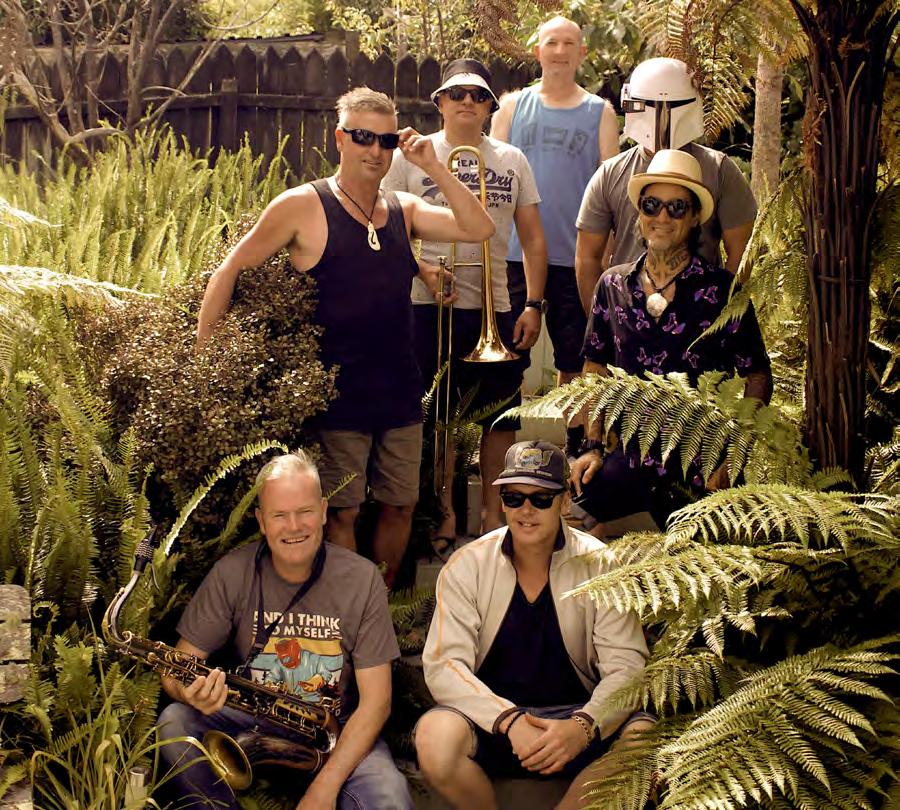
Bay of Plenty region.
#Bayofged don 2022 will be Armageddon’s 100th ever event and will showcase the best in gaming, technology, virtual celebrity guests, cosplay and more.

Armageddon Expo founder and director William Geradts says it will be jampacked full of the geeky entertainment attendees have missed for the past six months. He says partnering with a selection of gaming and technology-focused companies has seen the event evolve.

“While we still have that spe cial brand of geek magic that makes Armageddon what it is, we’ve redefined certain aspects of the show to appeal to a wider range of people,” he says.
“This year we are using our resources and knowledge to focus on bringing the latest and greatest in gaming and technology to our event.”
William says alongside the Ping Zero PC and console set arenas, the event will feature virtual reality and a light-up dancefloor with Just Dance 2022 challenges throughout the weekend.
The line-up of celebrity guests doing virtual panels include stars from Charmed, Supernatural, Batwoman, Batman Beyond and a bunch of other fandoms.
Attendees will also be able to enjoy a huge range of in-show events including the famous Armageddon Cosplay Contest, a Chilli Eating Challenge (with a $1000 grand prize), Squid Game-inspired competitions and more.
For more information and to purchase tickets visit the website: www. armageddonexpo.com
Benee
Indie-pop superstar Stella Rose Bennett better known as Benee will visit every corner of the country with special guests, THERE’S A TUESDAY.
Benee recently released her latest single ‘Doesn’t Matter’, her first taste of new music since her debut album ‘Hey u x’ hit the shelves in November of 2020. She broke out around the

world with ‘Supalonely’, an alt-pop ballad about unwanted isolation, a sentiment that was shared with many in 2020.
Get ready to experience the best of Benee at Trustpower Baypark on Sunday, 6 March before she embarks on a world tour. This concert is not to be missed! Secure your seat today at www.livenation.co.nz
Netball Magic
We look forward to welcoming you in support of the Waikato Bay of Plenty Magic vs the Trident Homes Tactics during round 3 on Monday, 28 March 2022. Keep your eye out for ticket sales to open on www.netballmagic. co.nz
Salmonella Dub
The multiple platinum-selling and award-winning D&B pioneers are performing across Aotearoa in their RETURN TO OUR KOWHAI TOUR 2022.
Joining the band on stage for this auspicious Tauranga show are old time members Conan Wilcox and Tiki Taane with their musical besties Whirimako Black & Laughton Kora, Scotty Taitoko – bone and Barrett Hocking – trumpet.
As featured artists on the album Tiki, Whirimako & Laughton bring a dynamic vocal powerhouse to Dave Deakins’s vocal arrangements and the bands huge multi genre live show.
This tour is especially auspicious as Tiki will also feature on the desk
as dub meister for a bracket of new album tunes as he did when he first joined the band back in1996.
The special guests are long-time Dub Conspiracy mates Si & KP and the consciously funky Sunshine Soundsystem joined by Aotearoa’s Dancehall Queen Dubi Du.
Tickets are on sale now at www. salmonelladub.com
Aotearoa’s Dub & Bass heavy weights will be at Trustpower Baypark on Friday, 1 April. Show starts at 7.30pm.
Stan Walker
With no need for introductions, Stan Walker embarks on his nationwide ‘ALL IN’ tour performing seven spectacular shows across Aotearoa, singing all of his hit songs and some brand-new music!
Boasting a stellar career that spans five studio albums, Stan Walker has been creating acclaimed New Zealand/Australian anthems for more than 12 years creating hit after hit including Black Box, Take It Easy, Loud, Galaxy, Thank You, Aotearoa, Bigger & Tua which features his god daughter Ibanez Maeva.
Joining Stan Walker on his headline tour are renowned Kiwi artists Kings, Louis Baker, Hamo Dell and rising star Crete, guaranteeing a show like no other that brings the WOW factor – a concert sure to impress fans of all ages!
“I can’t wait to perform my new live show for my fans with my incredible band, The Levites. I just love
being on stage and performing, being with the people in the moment is the best feeling. This is going to be the biggest and best tour of my career to date.” says Stan Walker.
Stan Walker’s ALL IN tour marks the resurgence of his first headline tour in two years. Join Stan Walker, Kings, Louis Baker, Hamo Dell and Crete on Saturday, 9 April at Trustpower Baypark Arena to experience a night of unforgettable live music!
Secure your ticket today at www. tickets.ticketspace.co.nz. A portion of each ticket sale will be donated to the I AM HOPE charity to support young people experiencing mental health.
Tauranga’s Premier Venue
Trustpower Baypark is Tauranga’s Premier Venue for conferences, meetings, entertainment and exhibitions. Offering a complete package in one convenient location that features state of the art meeting rooms, in-house catering, audio visual services, professional conference organiser (PCO) and marketing/promotional services.
CAVEAT: We appreciate the loyalty shown by our Bay Venues fans. The information above was accurate when we went to press. However, please note because of recent Covid-19 changes to government regulations we recommend that when finalising your bookings with us, you reconfirm the dates remain unchanged.
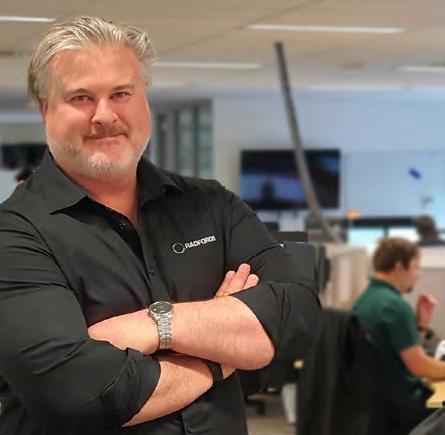
Australia’s largest processor and packer of potatoes and onions, Mitolo Family Farms, has engaged New Zealand fresh produce software provider Radford Software to streamline operations across the entire value chain, from soil to supermarket.
Radford Software chief executive officer
Adam Cuming said he was delighted that South Australian-based Mitolo Family Farms had chosen Radfords to support its next phase of growth.
“Onboarding a customer of Mitolo’s calibre reinforces our international growth strategy as we continue to focus on building client relationships across Australia and into the North American market,” Mr Cuming said.
“The partnership developed during the global pandemic which continues to present logistical challenges. However, we’re proud to have secured Mitolo’s confidence over the past 12 months within the constraints of the pandemic, without having set foot on the farm,” he said.
Mitolo Family Farms is a fully integrated business encompassing seed development, farming, processing, packing and distribution. It produces multiple lines over 40,000 hectares in three states for domestic and export markets. Radfords will be involved in its onion and potato operations.
Growth inspired new objectives
He said sustained success and future growth ambitions inspired Mitolo to rethink the way it grew, packed and sold produce – with the objective of better integrating all aspects of the business, improving customer service and finding new administrative efficiencies. In early 2020, Mitolo went looking for a software systems partner to transform operations and prepare the business for more customers and new markets.
“For Mitolo, the choice of Radfords as our primary implementation partner for our new ERP system became obvious throughout the selection process. The product will provide a relatively off-the-shelf fresh produce solution for our fairly complex application requirements from growing seed through to dispatch. As well as the solution, what differentiated Radfords was their practical, on-the-ground knowledge of fresh produce and a genuine willingness to help us succeed in our project.
“To date as we move through detailed design, that has not wavered and we have a high level of confidence in the Radfords team,” Mitolo Family Farms chief commercial officer Sue Edwards said.
Radfords will provide operational-specific platforms to transform Mitolo’s current manual systems and processes across the entire business – from farm management and product traceability to sales and marketing, business reporting and planning.
As well as Radfords’ core traceability and inventory management solution, FreshPack, Mitolo will adopt Radfords’ FreshGrow and FreshQuality platforms, together with its data warehousing and business intelligence tool, FreshInsights.
FreshGrow is Radfords’ end-to-end management solution, streamlining day-to-day operations on farms and orchards, ensuring input and resource data is captured and maintained in one central location. FreshQuality simplifies the QC process and recording of produce quality assessments, capturing test results throughout the supply chain – from soil to supermarket.
The first phase of the Mitolo project is due to go live in May 2022.
Self-employment can be a rewarding way to make a living. It takes persistence, dedication and resourcefulness to work for yourself and build a successful business.
Best of all, the work structure that comes with self-employment can offer many advantages.
In fact, for many Kiwis the decision to become self-employed is rooted in the ability to be their own boss and live more flexibly while working fewer hours.
But this isn’t always the case – too many are telling us their current workload is unsustainably large.
Even before the world changed due to Covid-19, more than 40 percent of Kiwi small business leaders were overworked.
And particularly after summer, many self-employed Kiwis find themselves launching into the new year trying to make up for the time spent without income during the holidays.
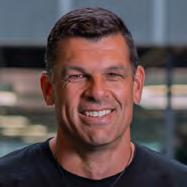
> BY CRAIG HUDSON
Craig Hudson is Xero’s managing director for New Zealand and the Pacific Islands.
But overworking can have a negative impact on your wellbeing and eventually lead to burnout. When you’re focusing on the success of your business, it can be easy to let things, like your wellbeing, slip.
While looking after yourself is crucial to being able to give 100 percent at work and in life, sometimes it can be difficult to know where to start.
That’s why we developed the Self-Employed Check-In, a guide to improving resilience and wellbeing in the workplace with a focus on self-employed Kiwis.
There are some simple steps you can take to make a conscious decision to look after yourself and maintain a healthy work-life balance.
Establishing routines and rhythms
The decision to become your own boss can be liberating. But it’s valuable to have very clear distinctions between when you’re working and when you’re not.
Not allowing yourself sufficient
breaks away from work can lead to burnout and severely impact your wellbeing.
Setting clear boundaries
When you’re working for yourself, it can feel tempting to say yes to every single offer that comes in. After all, you’ve got to maintain your income, right?
But it’s important for your wellbeing and overall productivity to learn when to say no.

Self-employed people can put unhealthy pressures on themselves. It’s important to establish your boundaries.
Managing stress with the tools available
Getting on top of the most stressful elements of your business is essential, and there are several tools you can use to help.
If you’re not using technology across all aspects of your business, you’re likely working harder, not smarter and putting more hours into your work than you need to.
Looking for ways to automate tasks, using online applications and other digital tools can cut out unnecessary administration so you can focus your time on acquiring more business
In this first Business News column penned in 2022, I’d like to take the opportunity to thank everyone in the business community for their patience and applaud you all for your fortitude.
By ANNE TOLLEY, Tauranga Commission Chair
2021 was a difficult year, to put it mildly. The ongoing impacts of the Covid-19 pandemic were felt around the region and country and I know many of you have been struggling with its affects on your businesses, particularly those in the tourism, hospitality and accommodation sectors.
Added to that, the supply chain issues arising from export and import shipping delays have been and continue to be frustrating and costly. I hope the worst is over and we start to see freight begin to move more efficiently and freight costs return to something like normal.
The Tauranga City Council commissioners greatly appreciate the support we have had from the business sector and we acknowledge that the increase in the business differential rate in the 2021/22 year has made life more difficult for some.
However, as we all know, the city has many pressing problems and given our limited governance tenure, we simply have to get on with the job of remedying our infrastructure and community facility deficits.
The change in the commercial differential rate is starting to bring us more into line with other major NZ centres and the increased business contribution is allowing us to move forward on many vital transport, three waters and community projects, with capital expenditure of some $4.6 billion earmarked in our 2021-31 long-term plan.
Businesses will see the benefits of these initiatives as they come to fruition, and again, we acknowledge the solid support of the sector for our efforts to get the city moving.
2022 will be a big year for the Council and the Commission, as the plans we put in place last
year begin to take effect on the ground. The most obvious example is the work now underway on Cameron Road, which is a key part of the urban transformation of the Te Papa peninsula,
2022 will be a big year for the Council and the Commission, as the plans we put in place last year begin to take effect on the ground.”
but there will be other projects initiated as we work to address the city’s housing shortfall and transport woes.
We’ll also see a start made to some other important initiatives, such as the new central library
or doing what you love outside of work – both of which can improve your wellbeing.
Small steps to look after yourself
There’s a lot of information out there when it comes to wellbeing strategies and trying to make sense of it can be overwhelming. But the best thing you can do is simply to start by taking small steps to move you in the right direction. Little steps add up to big changes over time.
Finding support.
Being self-employed can be isolating. You can find support by connecting with your local community, and others in your line of business, both online and in person. There are also wellbeing support services like the Xero Assistance Programme (XAP).
Asking for help isn’t a weakness; it’s a strength and often the first step towards a better life. It also puts you in a better position to be more productive and drive your business forward. All workplaces play a central role in building people’s resilience and wellbeing, and being self-employed is no different.

and community hub in the Civic Precinct, following the demolition of the existing council building and library. A start will also be made on the new leased civic administration building at 90 Devonport Road and in combination with private sector initiatives, we can look forward to a progressive rejuvenation of the CBD, and its eventual transformation into the region’s cultural, community and business heart. Like all businesses, we face pressures from increased costs and staff shortages in some key skills areas. However, with the exciting programme we have in front of us, we’re starting to attract people with ‘the right stuff’ to add their expertise to the resource provided by our extraordinarily committed and hardworking council team. On behalf of the Council, I offer best wishes for a prosperous year. We look forward to working with you to get the city we all love back on track. Nga mihi nui
My career has been built out of the existence of conflict, My advisory business, NJK Advisory, trains business owners on how to get rid of grey areas in transactions that can create space for dispute, Our investigations company, International Private Investigations, investigates the truth behind fractious situations.
Our IPI Debt Mediation Services Division mediates disputes, and our repossession division, NZ Repossession Services, recovers the secured assets once the commercial relationship has reached the end of the line.
To be completely transparent, all of the activities that I participate in professionally would be rendered absolutely redundant if the parties involved had clear, timely, honest and forthright communication.
With disputes or conflict people tend to do one of two things. They either ignore them and hope they will magically resolve themselves, or employ heavy-handed tactics to attempt to teach the

My advice to my clients is always that communication is the most effective method of correction.”
other party a “lesson” about how they feel they should be treated. In other words, they try to swat a fly with a nuclear bomb.
Neither of these approaches are the most effective from either a financial or time efficiency perspective. The most clear example

> BY NICK KERR
Nick Kerr is a Business Advisor at NJK Advisory Ltd.
He is also director of International Private Investigations Ltd.
Nick can be reached at nick@nzipi.com
of the above can be seen with some of the finance companies that we work with. They all have the same onboarding techniques, very similar client demographics and operate under the same lending criteria.
Some have almost no defaulters and some have a great deal – the only difference that I see is in the frequency of client contact reflected on the file notes when we get involved.
When Company A sends one of their files through for action (very rarely), we see multiple outbound “customer care” calls just checking in to see how the client is doing and asking if there is anything that
A common concern by franchisees – and a source of criticism, challenges and opinion within franchise business structures and systems – concerns requirements for franchisees to purchase from either the franchisor or through nominated suppliers.

> BY NATHAN BONNEY
Nathan Bonney is a director of Iridium Partners. He can be reached at nathan@iridium.net.nz or 0275-393-022
he criticism usually comes from one or more perceptions by a franchisee; that they can purchase the products cheaper, or that the franchisor is making rebates or margins on products.
Franchisors want harmonious relationships with franchisees, so why do many franchise systems pursue such policies, aware that they can create tension and often suspicion?
It turns out that it can often be a significant competitive advantage for the franchisees themselves and critical to the success of both franchisor and franchisee.
There are four general rules of thumb that would be the guide if compulsory purchasing actually has a role to play in the success of a franchisee or franchise system.
The Franchise has an unique or proprietary product
Many franchise systems have unique products, inputs or processes. They could be covered by patents or have been developed over a long period of time and have an associated development of intellectual property.
In these cases there is often no possible substitute.
Consistency of supply
Consistency of product or ser-
vice is a cornerstone of franchising. Where changes to products or inputs would be noted by a consumer or have an overall impact on the product or service compulsory supply chain arrangements make complete sense.
The classic example, of course, would be your Big Mac and what goes into that, consumers would know if it was not the real deal. But for
many systems the ingoing products or components could be less visible to the consumer, but equally critical. Some examples are branded car parts for a vehicle retailer or servicer, or the brand and supply of hair dyes for a franchised hair salon.
Provenance of the products
Knowing where a product or input has come from can be extremely important. Increasingly consumers want traceability of supply chain for either ethical or environmental reasons.
There are also a number of other reasons why this is critical, which could include food or product safety, and even the ability for a brand to market or create a point of difference from being locally sourced, ethically sourced and or supporting a particular community.
the company can do to assist the client.
It is important to note that these calls are made while the account is still current and precede any defaults.
When company B sends one of their files to us (frequently), any outbound communications are reactionary calls made after a default event and these calls very rarely are answered by the client without multiple attempts and normally only after a prepossession notice or other threat of legal action, all of which incur costs on behalf of the company that will need to be recovered from the client.
When dealing with the clients of Company A to recover assets, we more often than not
find that the clients are at the address that we have been sent to and the assets are usually in a good saleable condition or the client settles the arrears in full. With Company B, the clients often need to be traced, and we find that the assets are either in poor condition or have been illegally on-sold. The difference between the two communication approaches can be in the 10s of thousands per file, much of which will be unrecoverable if the client decides to go a NAP (No Asset Procedure) or bankruptcy. My advice to my clients is always that communication is the most effective method of correction.
Just a thought.

The bulk buying power of the group
The most often espoused and not to be under-estimated virtue of compulsory purchasing is in the generation of bulk buying power.
Lower prices create margin for franchisees and a competitive advantage. In some industries or sectors this alone can be the difference between success or failure.
My thoughts are stick with the system
So with the above in mind, is the margin or rebate argument warranted? In my opinion, whilst it cannot be ignored that gauging may sometimes exist, by and large it does not. This is assuming pricing is correctly incorporated and represented
in the franchise system and its commercial modelling – it is in “the model” which the franchisee buys into.
Additionally, franchisors do need to be commercially viable and make a profit to stay in business and support the system, and if they have developed a product or process they deserve to be able to commercialise it.
Finally, I would suggest that there are more productive ways for a franchisees to be spending their time and effort than bucking an established supply chain, which is taken care of on their behalf.
Perhaps this year in a high inflationary environment with massive disruptions to supply chains, more franchisees will appreciate the significant competitive advantage that is created for them.
Zespri has confirmed that its current red kiwifruit will be named Zespri RubyRed™ Kiwifruit for the first year of sales of commercial volumes in the upcoming 2022 season.
Commercialised in December 2019 and initially marketed as Zespri Red during the sales trials, Zespri RubyRed™ Kiwifruit will be available in commercial volumes for the first time in 2022 in New Zealand, Singapore, Japan and China, with volumes expected to increase from 70,000 trays in 2021 to around 250,000 trays in 2022.
Zespri Chief Growth Officer Jiunn Shih
said the new name better reflected the fruit’s properties and had tested well in consumer research.
“Consumers have been attracted to the fruit’s unique colour profile and berry-like taste and we’ve been delighted with their feedback,” he said.
“The consumer response to our limited sales trials over the last three seasons have exceeded expectations and suggest Zespri RubyRed™ Kiwifruit is able to attract new and younger consumers into the kiwifruit category, complementing our offering of the world’s best kiwifruit.
Alluring red colour
“Throughout our consumer research, Zespri RubyRed™ Kiwifruit has remained at the top of consumer’s preference list – not only because it reflects the rare and precious nature of the fruit but the ruby element gives consumers an immediate sense of that alluring red colour.”
Shih said consumer research was undertaken in a number of markets, and also took into account the need for the new name to translate across different languages given the fruit’s broad appeal in Asian markets.
The name is in the process of being trademarked in Zespri’s key markets.
“The shorter shelf-life of Zespri RubyRed™ Kiwifruit compared to Zespri SunGold and Zespri Green has meant that we’ve prioritised our Asian markets given the shorter marine transit times.”

Mount Pack & Cool’s Stage 4 expansion is nearing completion on time, on budget and on spec. The addition of a new packhouse fitted with a state of the art packing line and bin curing room, 17 controlled atmosphere (CA) stores and four coolstores make its site at Tauriko the largest individual kiwifruit post-harvest site in New Zealand, employing 600 people.
The investment gives Mount Pack & Cool the capacity to handle 24 million trays of Class 1 kiwifruit across its total site. Managing Director Brendon Lee said there was a sense of pride amongst growers and staff that the development had created such high-quality infrastructure.
“We’ve taken growers through the building and they can see how the investment will benefit them through cost-savings in top-of-the-line, labour-saving technology.”
Export growth drove plans
The kiwifruit industry’s export growth and demand for the Gold variety drove Mount Pack & Cool’s Stage 4 plans to commission a packhouse purpose-built for Gold kiwifruit. Temperature and humidity will be carefully controlled inside the packhouse to preserve the fruit quality as it moves through the facility and out of CA environment, ensuring there’s no humidity or sweating on the fruit, extending its shelf life.
Packing kiwifruit for growers across the Bay of Plenty, Mount Pack & Cool has been actively growing since construction began at its 6.5ha site in 2017. It started operating in May 2018 with a 23,000sqm custom-designed bin curing room and packhouse, 10 coolstores, 6 pre-coolers and eight CA stores. In May 2020, work was completed on an additional 9 coolstores and six pre-coolers as part of the facility’s Stage 3 development.
Life is being breathed into former bank premises as prime real estate is freed up across the country. The universal rise of digital banking, the axing of cheques, and the decline in cash transactions have underpinned the closure of many trading bank branches up and down NZ.
Consumer NZ says over the past decade, 366 bank branches closed their doors – largely in response to changed consumer behaviour. It is thought that fewer than one per cent of all banking transactions occur within a branch, and that figure is declining.
Chris Beasleigh, Bayleys national director retail sales and leasing, says this signals opportunity for the retail sector. “Occupiers recognise and appreciate that bank premises are always very well-located, have been maintained to high standards given their customer-facing activity, and have good profile and access,” he says.
“Sometimes, the ATM facility remains in place, meaning foot traffic heads that way, too. The exodus of physical banks from the high streets is the way of the world and we find that these buildings are popular with tenants across the spectrum from hospitality operators through to boutique stores.”
Physical bank closures increasing
According to reports, banks have been vanishing from UK towns and cities at the rate of around 50 a month since 2015,

with further closures imminent and inevitable given consumer trends.
In the US, it has been suggested that the number of physical banks could fall to fewer than 16,000 by 2030 – a number not seen since 1965 –and further given these trends, all bank branches could be closed by 2034.
That’s a lot of real estate potentially coming onto the sales and leasing market.
In New Zealand, the repurposing of former bank buildings for retail use is not new.
“Wellington’s Old Bank Arcade in Lambton Quay occupies the former Bank of
New Zealand headquarters in a prime shopping destination and the 120-year old building provides a character-full retail precinct where history is a key drawcard,” says Beasleigh.
“Similarly, the old National Bank of New Zealand Building on the corner of Cuba Street and Vivian Street, Wellington, has been occupied by the acclaimed Logan Brown Restaurant for decades.”
McDonald’s opened its second New Zealand restaurant in the old Auckland Savings Bank building at 260 Queen St in June 1977. While the fast food chain has since relocated a few doors along, it is
expected that the 1884-built bank building will find a new retail use – like many others on the main street.
In Dunedin, Bargain Chemist has made its first foray into Otago, moving into the former ANZ bank building on the corner of George and Hanover Streets citing accessibility, visibility and the size of the site as compelling fundamentals.
Beasleigh says Bayleys has recently sold several former bank premises which will be reimagined into retail spaces –evidence that the retail sector continues to evolve as technology and consumer preferences redefine the retail landscape.

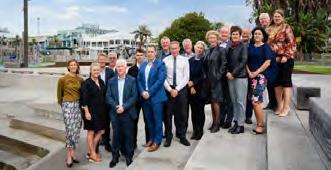
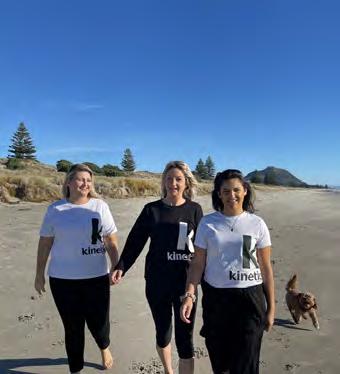



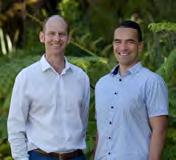
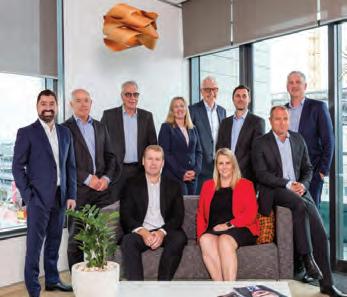

Mum ran the organisation – pretty much.
Sure, Dad went to work and did “Dad stuff”, but when you needed things done, there was really only one person who called the shots – Mum.
Was my family typical of many? Most? I suspect it was. That’s not a scientifically proven, read-it-on-the-internet-so-it-must-be-true fact; Just a strong hunch on my part.
Needed to buy school books? Mum sorted it.
Lunch money? See Mum!
Getting to the parent-teacher interview? Also, see Mum.
Making sports practice on time (with all my gear)? Yup … Mum.
I mean Dad wasn’t useless. If the lawn needed mowing, Dad was the man (person). Car repairs: Dad. Severe discipline needing to be administered: Father, Sir (though he wasn’t really that good at it. He really only did what the boss told him to do. Bless).
Shift in the ‘natural order’
There was a natural order of things it seemed. Not always logical or based on Dad’s skill set or individual aptitude – just
on tradition really. Strange that the alphamale was always represented through my early life as the leader, the smart one, the breadwinner, survivor, champion.
Strange, because when it came down to the basics of survival, he didn’t know how to boil an egg, darn a sock or dress a wound. If survival of the human race had relied solely on Dads, we would have been pretty well screwed in the 60’s and 70’s.
Being able to swill three jugs of beer between 5pm and 6pm was never a skill set that was going to save mankind really. The fact Dad wasn’t allowed in the delivery suite (because he probably wouldn’t cope) didn’t bode well for his chances of successfully gaining his ‘Warrior Champion Dad’ scout badge.
My concerns about Dads’ ability to rule the earth were irrevocably vindicated by my Dad’s reaction to being denied access to the maternity ward: He went straight to the pub, did not pass Go, and swilled three jugs in an hour while mum has the baby. Job done and, somehow, mankind’s
future secured for another generation.
I don’t mean to pick on my Dad specifically – I’m really talking about Dads in general in my part of the world at that time in the 20th century.
He wasn’t completely useless – although he couldn’t type (mum could), he dictated what he wanted to be typed, as was the way then, and the secretary obliged. I guess that is sort-of leadership.
Fast forward a few decades and peer back … it all seems a bit

> BY ALAN NEBEN
Alan Neben is a Mount Maunganui local and experienced New Zealand publisher. He strongly supports eliminating the gender pay gap. alan@bopbusinessnews.co.nz

Today, measurement of women’s success is no longer narrowly defined by their aptitude for motherhood – thank God.”
Today, measurement of women’s success is no longer narrowly defined by their aptitude
for motherhood – thank God. Our modern economy and our communities are today driven by a diverse range of individuals with a wide array of skills. 2022 and I’m reading in this very publication about women running large business enterprises, making astute commercial decisions, driving tankers, writing programs and managing people – in their own ways being Warrior Champions (without needing badges). And, I suspect, most of them are typing their own letters and mowing the lawn occasionally.
I feel somehow reassured by that, as if common-sense prevails more now and things are getting done. Seems to me that makes more sense for all of us.

TWith the announcement that Omicron is now in the community and the move to red as a nation, it is timely yet again – as employers – to ensure our contingency plan is in place.
>
BY KELLIE HAMLETT
Talent ID are Recruitment Specialists and can support you through your recruitment process. Please feel free to talk to us about this by calling 07 349 1081 or emailing kellie@talentid.co.nz
he government has been warning us that once in the community Omicron will quickly spread and to expect a high number of cases. As businesses it is vital that we prepare ourselves quickly and for every eventuality.
Thankfully, most of us have had some practice and many of us are fully integrated into working from home or utilising a hybrid working model. However, for some that is simply not possible. It’s time to review yet again, our Business Continuity Plan – a refresh to ensure we are ready for what may lie ahead.
As a business who provides advice to employers, and also as an employer of my own staff, it’s timely to revisit the planning around interruption of business operations.
Should Omicron spread as predicted we will have staff sick who are unable to work, staff isolating, and further supply chain delays, which in turn is pushing the cost of goods upwards.
Plan for business continuity
There is a general obligation for employers to pay salaried and wage workers who are fit, willing and able to work, but can’t because their place of employment is closed or damaged.”

The aim is to help you to recover as quickly as possible. Think about the following aspects; what are your specific risks if something were to go wrong?
Is doesn’t need to be a pandemic or natural disaster. How would you get back to a business as usual state? And what are your options if you can’t return to business as usual?
To start with your business continuity plan you’ll need to identify your key products or services, those most profitable, least profitable and what are the essentials you need to carry out these activities.
Who are the key people within your business, and this won’t always be limited to
Planning for business continuity will help you to identify the most important aspects of your business and the critical risks in these areas.
employees? What about your vital business connections –for example suppliers, service providers, regular customers, etc?
Plant and equipment – what do you need in order to do what you do – what is essential and how what would you do if you didn’t have access to your usual equipment?
In terms of location, where could you work from if you didn’t have access to your usual work premises?
When planning for the unexpected, think outside the square in terms of where your business could potentially operate from.
For example, if your premises were damaged or unavailable, could your staff work from home or another location and how easily could com-
pany information and data be accessed in order to do so?
How would your customers know how to find you or contact you? Do you have appropriate insurance cover in place to protect you against losses?
Business interruption insurance can help cover businesses with their normal operating expenses and this will likely include covering wages for a period of time whilst your business may not be generating an income.
If you couldn’t run your business – who could? Have you identified key roles within the business and their roles in helping your business operate?
Have you briefed staff and trained them across different roles that they may need to
perform if others are away?
It may even be a good idea to talk to your bank manager about managing cash-flow.
In terms of managing your staff, it is really important to remember that employers have obligations to their employees under the Employment Relations Act. Update yourself on sick leave allocations and the use of annual leave or leave without pay to see if these may be options you are able to utilise.
General obligations
There is a general obligation for employers to pay salaried and wage workers who are fit, willing and able to work, but can’t because their place of employment is closed or damaged.
There are other options which include the negotiation of using annual leave for a period of time, unpaid leave or the offering of alternative work.
An important factor when dealing with any interruption in your business and then subsequent decisions around running the business and negotiating with your staff is to keep communication lines open and active. A stressful time for all concerned and a flexible and common-sense approach is needed to get businesses up and running and staff back on board.
Planning and communication are key in times of adversity and we can take practical steps to minimise the impact such an event could have on our own situations.





















